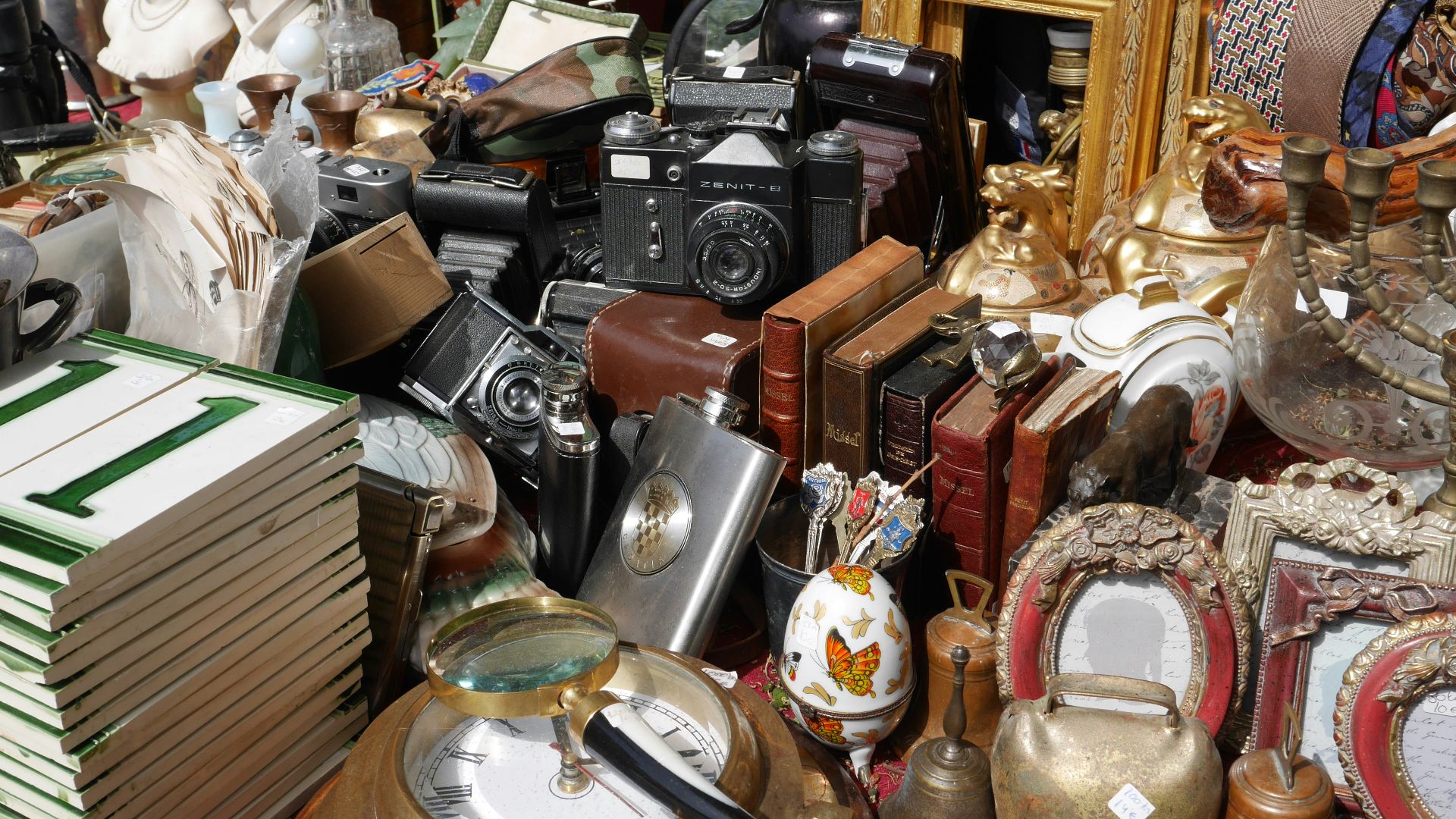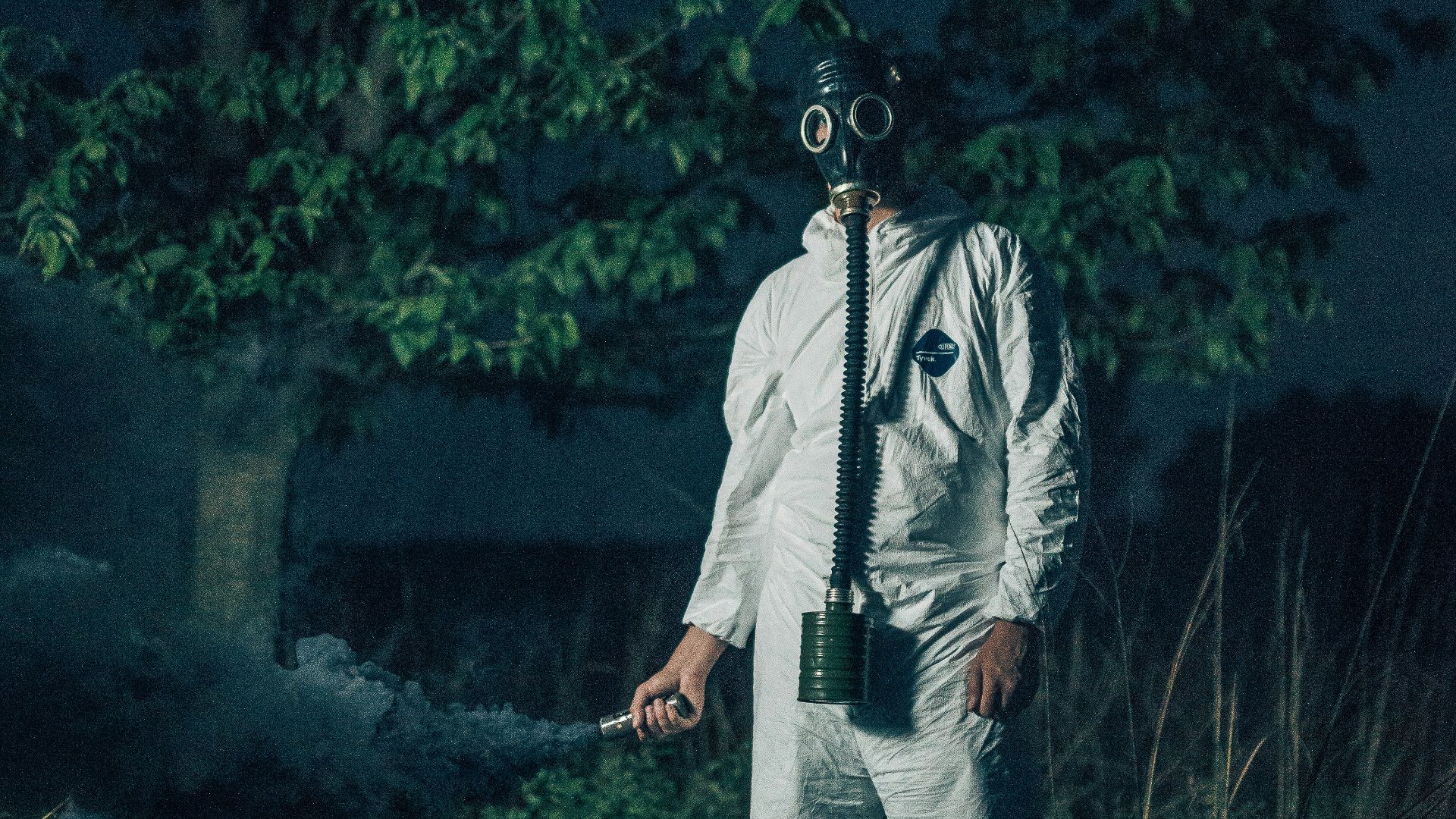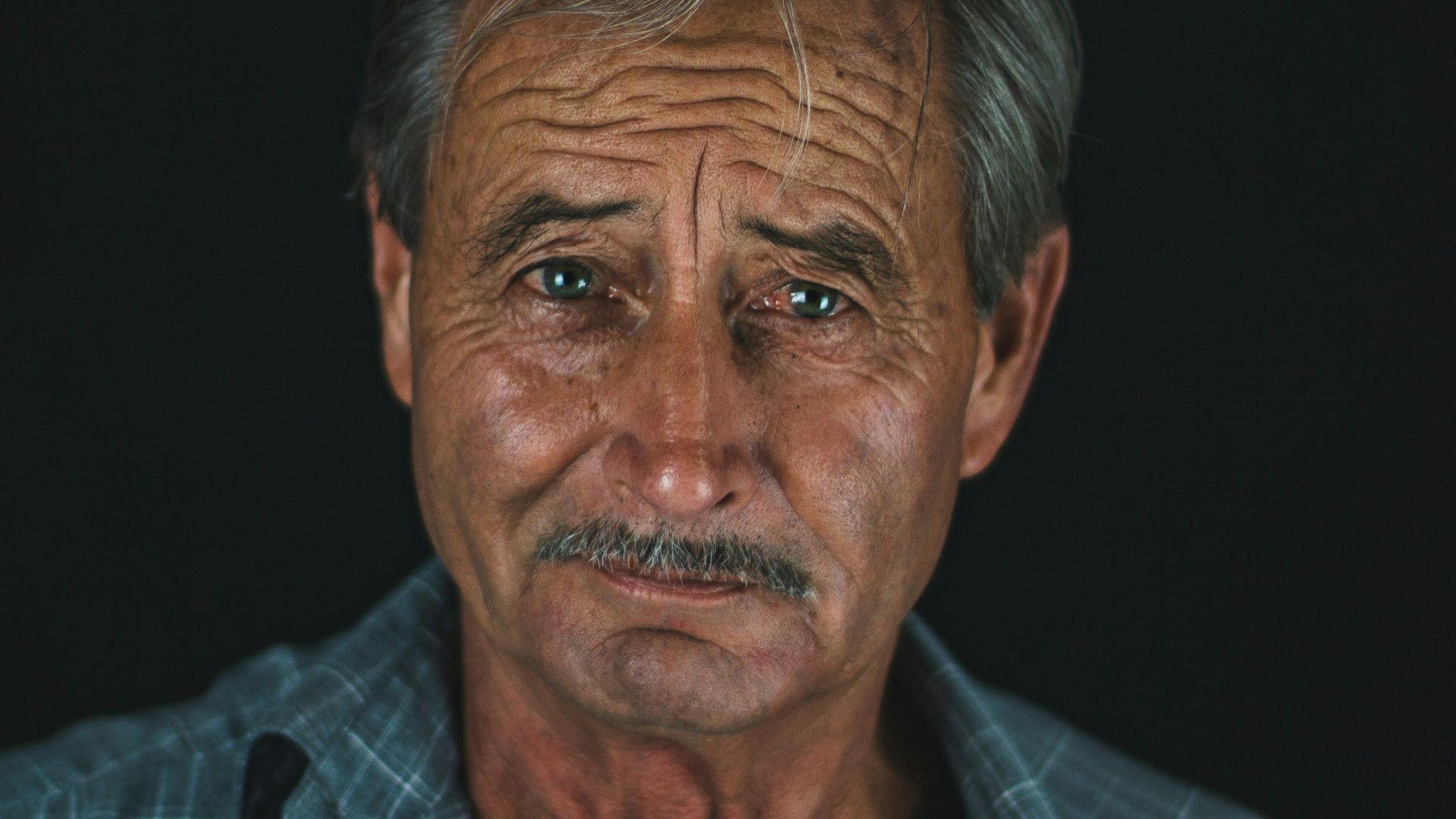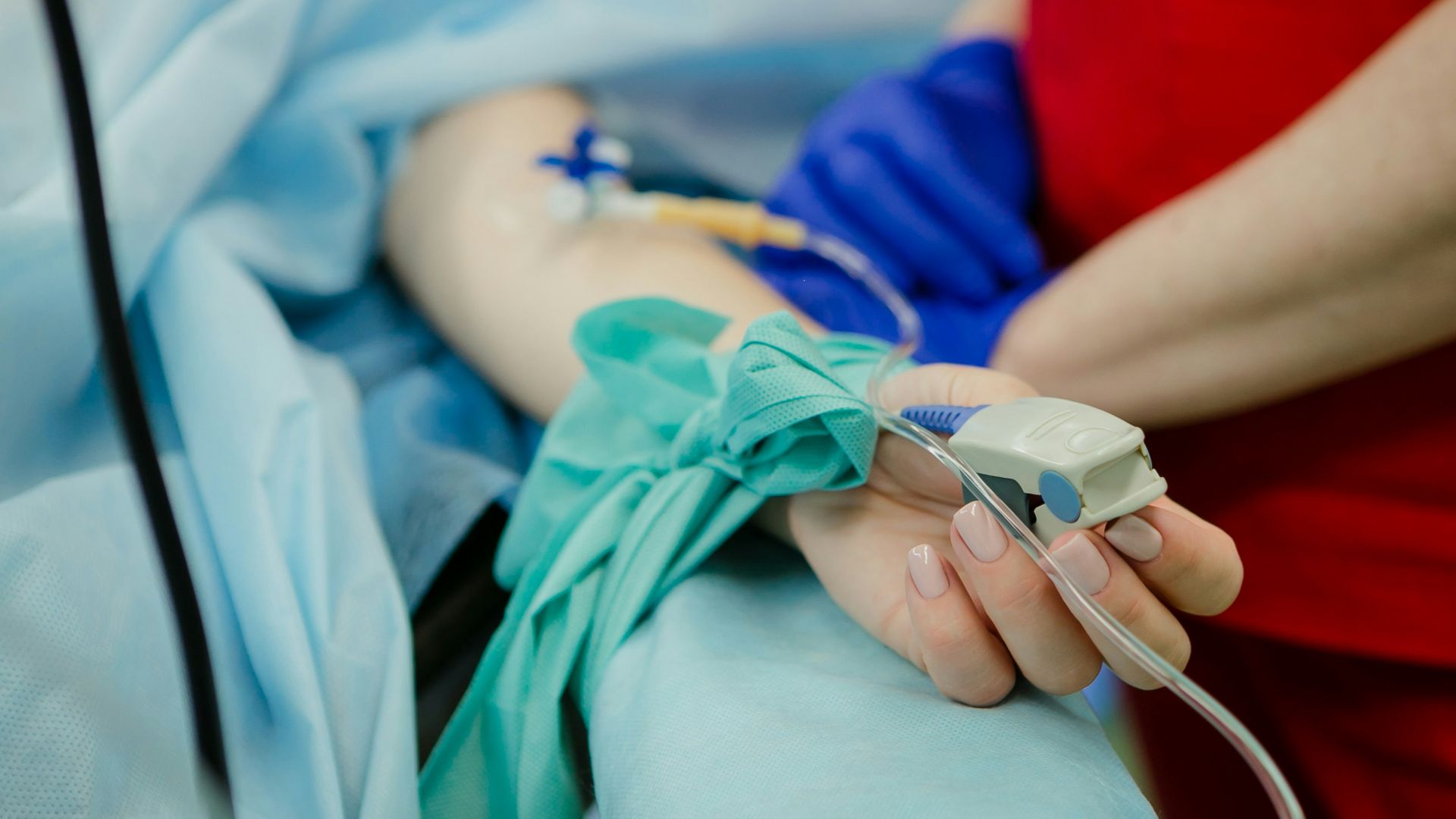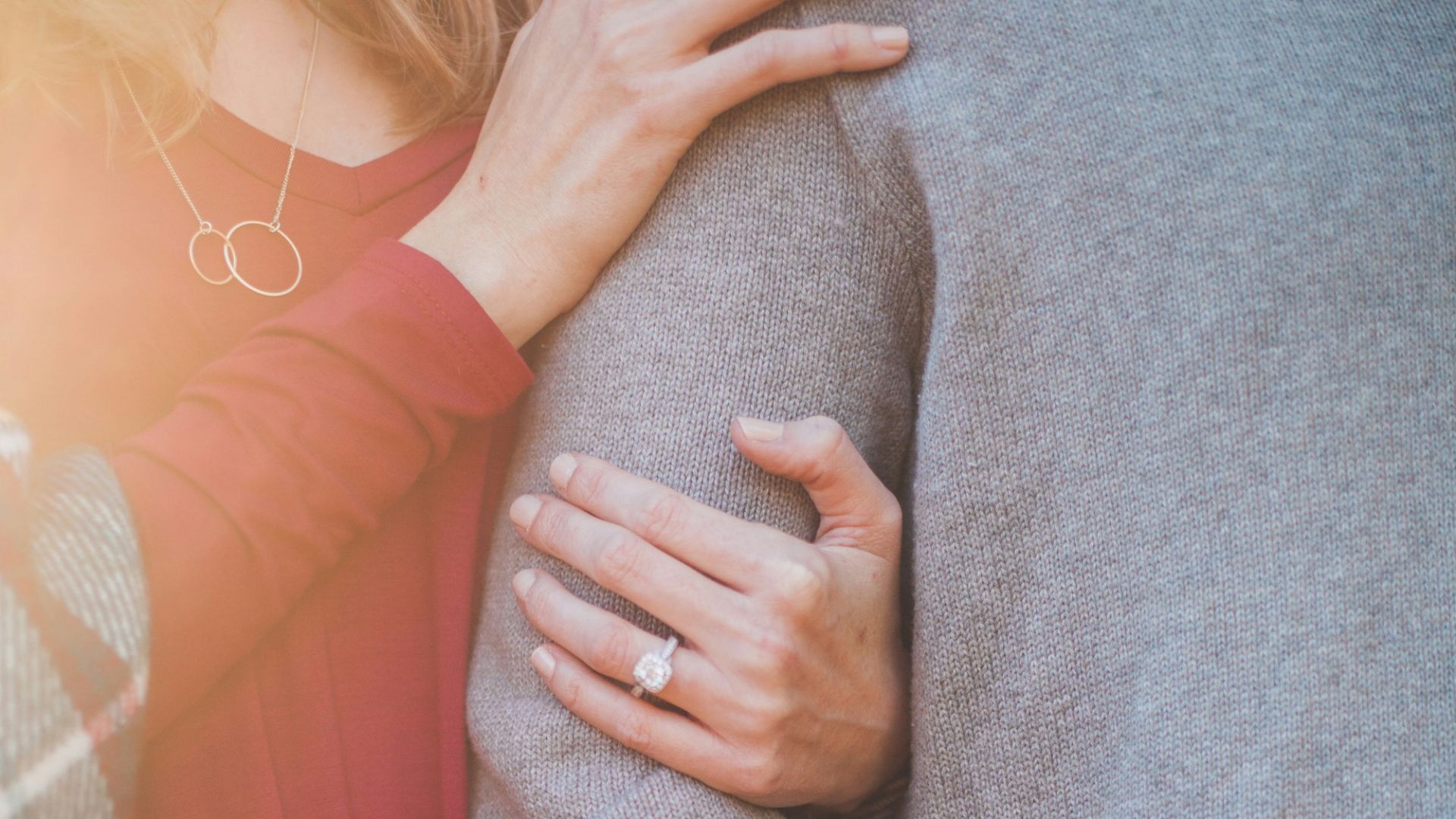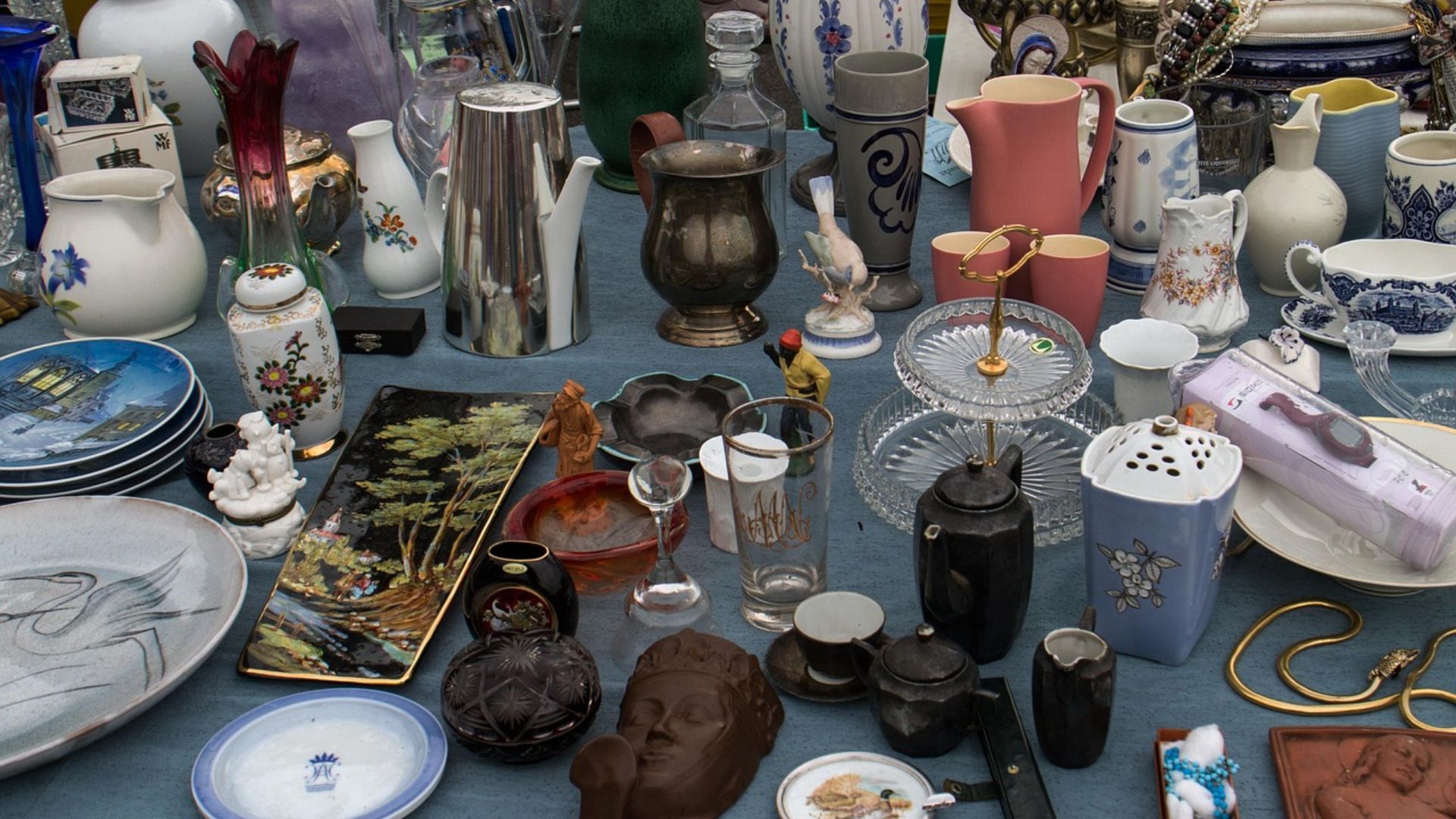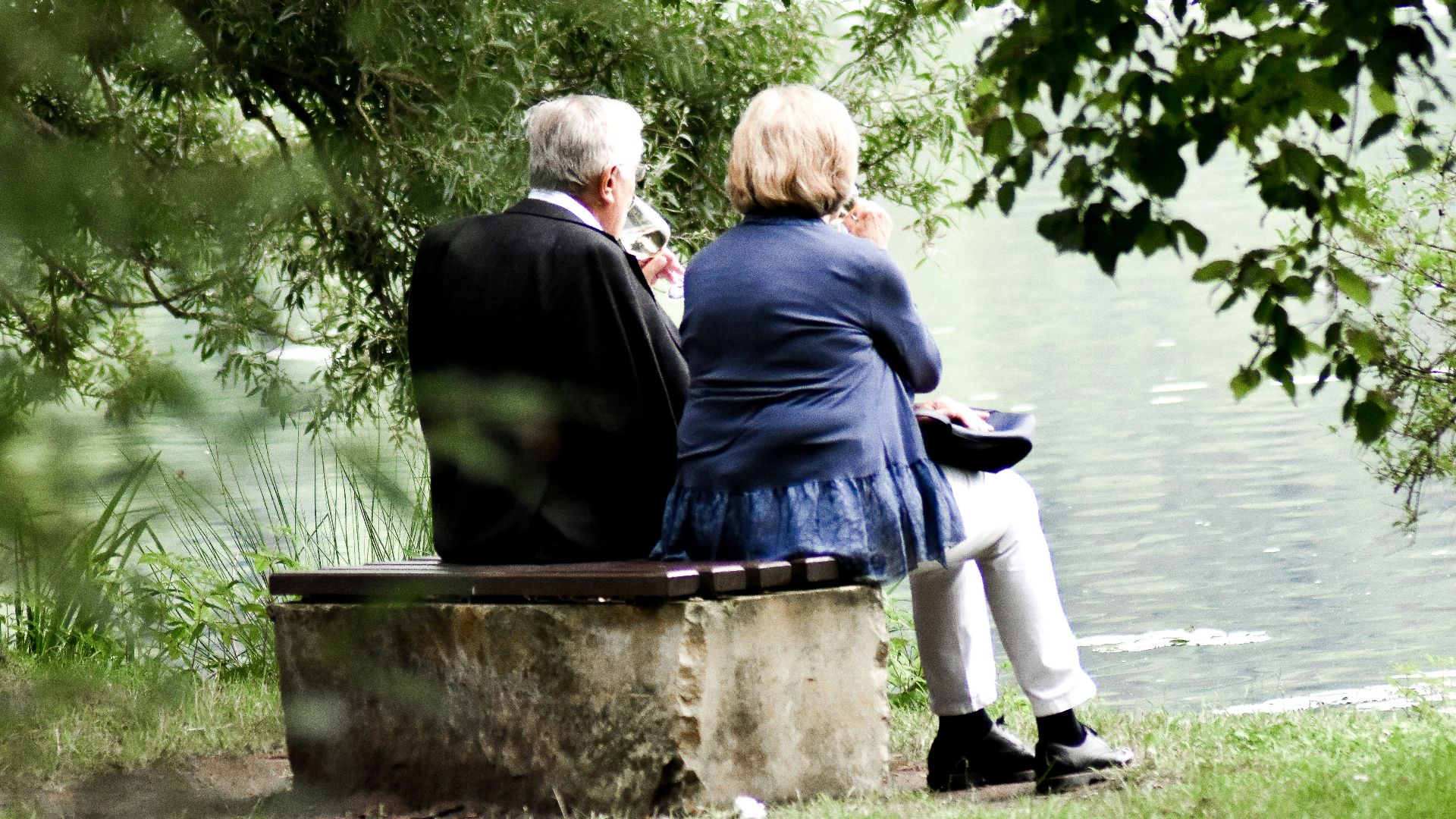The Empty Nest Syndrome
My name is Jan, and at 55, I found myself navigating the unfamiliar waters of post-divorce life. After twenty-seven years of marriage, my husband decided our love story had reached its final chapter, leaving me alone in our family home that suddenly felt too big, too quiet, and painfully empty.
Our son Cameron had already flown the nest, building his own life with his wife in a neighboring town. The silence that greeted me each morning was deafening, a constant reminder of everything I had lost.
The walls that once echoed with laughter now only reflected back my solitude. I needed something—anything—to fill the gaping hole that divorce had carved into my existence.
Little did I know that my search for fulfillment would lead me down a path I never could have imagined, one that would nearly cost me my life.
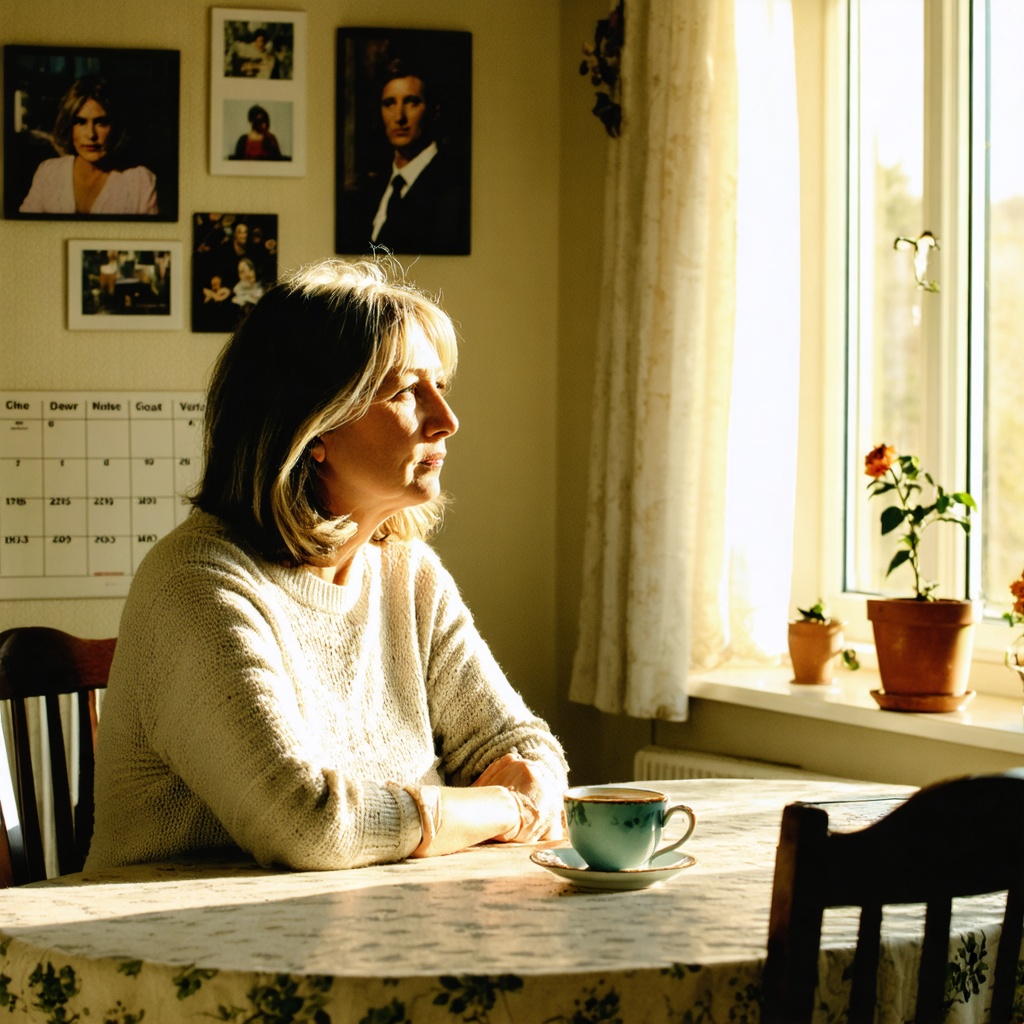 Image by RM AI
Image by RM AI
Finding Joy in the Discarded
It started innocently enough, with a Sunday afternoon drive to clear my head. I found myself pulling into a local flea market, drawn by the colorful flags flapping in the breeze and the promise of distraction.
Walking through the rows of vendors, I felt a spark of something I hadn't experienced in months—curiosity. Each table was like a treasure chest of possibilities, filled with items that carried stories from decades past.
I ran my fingers over vintage teacups, flipped through yellowed photographs of strangers' weddings, and admired hand-carved wooden figurines. For the first time since signing those divorce papers, I felt a flutter of excitement.
These forgotten treasures spoke to me in a way nothing else had since my marriage ended. They were like me—once valued, then discarded, but still holding beauty and purpose.
I left that day with a small brass candlestick and something even more valuable: a new passion.
 Image by RM AI
Image by RM AI
The Thrill of the Hunt
Over the next few years, antiquing became more than just a hobby—it became my salvation. Every weekend, I'd map out a route of estate sales, thrift stores, and flea markets, rising before dawn to be first in line.
I transformed our formal dining room—a space that had only served to remind me of failed holiday dinners and family gatherings—into my personal museum. Glass-fronted cabinets displayed my growing collection of vintage perfume bottles that caught the morning light.
Weathered wooden shelves held art deco bookends and mid-century modern figurines. Each piece had a story, a history that I researched meticulously, often staying up until the early hours of the morning lost in online archives and collector forums.
My friends thought I was filling my home with junk, but I knew better. I was filling my life with purpose, with beauty, with connections to the past that helped me face my uncertain future.
If only I had known that one small purchase would change everything.
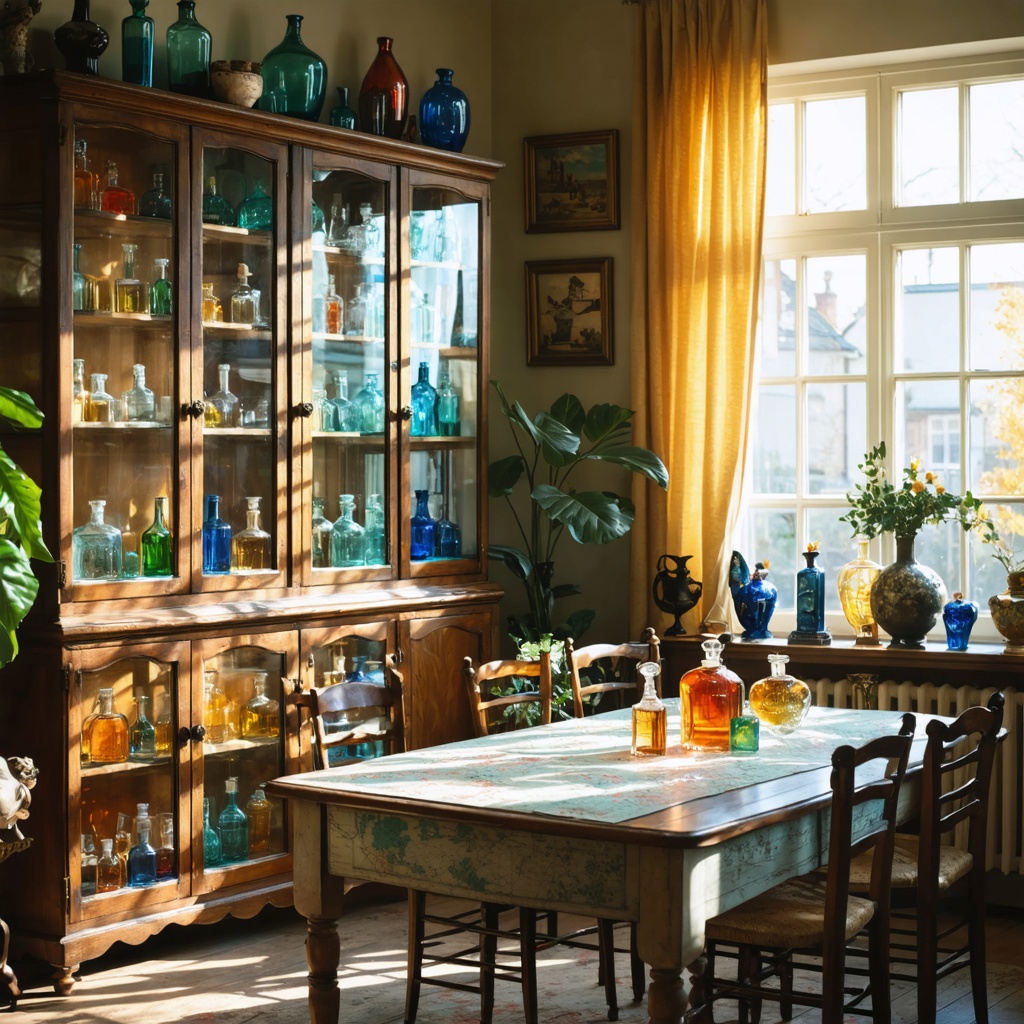 Image by RM AI
Image by RM AI
The Five-Dollar Find
It was an unseasonably warm Saturday in October when I spotted it. I had been at the flea market for hours, the thrill of the hunt keeping me going despite the growing ache in my feet.
Most vendors were already packing up when I noticed a table I hadn't visited yet. The elderly man behind it looked tired, his weathered hands methodically placing unsold items into cardboard boxes.
That's when I saw it—a small, peculiar metal object nestled between a tarnished silver letter opener and a chipped ceramic ashtray. It was about the size of my palm, cylindrical with intricate engravings along its surface that had been worn down by time.
Something about it called to me, a whisper I couldn't quite make out but felt compelled to answer. I picked it up, surprised by its unexpected weight.
The metal was cool against my skin, and for a moment, I could have sworn it hummed with energy. What was this strange little treasure, and why did I feel so drawn to it?
A Mysterious Bargain
"What's this?" I asked the vendor, turning the object over in my hands. The elderly man glanced up, squinting through thick glasses that magnified his pale blue eyes.
"That there's an antique paperweight," he replied, his voice gravelly from years of cigarettes. "European, I think.
Found it in a box lot at an estate auction." I studied it more closely, noticing how the light caught on its dull metallic surface. There were no maker's marks that I could see, nothing to indicate its origin or age.
"Interesting design," I commented, running my thumb over the worn engravings. The vendor shrugged, clearly more interested in finishing his packing than discussing the item's provenance.
"Five bucks and it's yours," he said dismissively. "Otherwise, it's heading to the scrap heap." Something in me couldn't bear the thought of this curious object being melted down or tossed away.
Without hesitation, I pulled a five-dollar bill from my wallet, never suspecting that this small transaction would soon turn my world upside down.
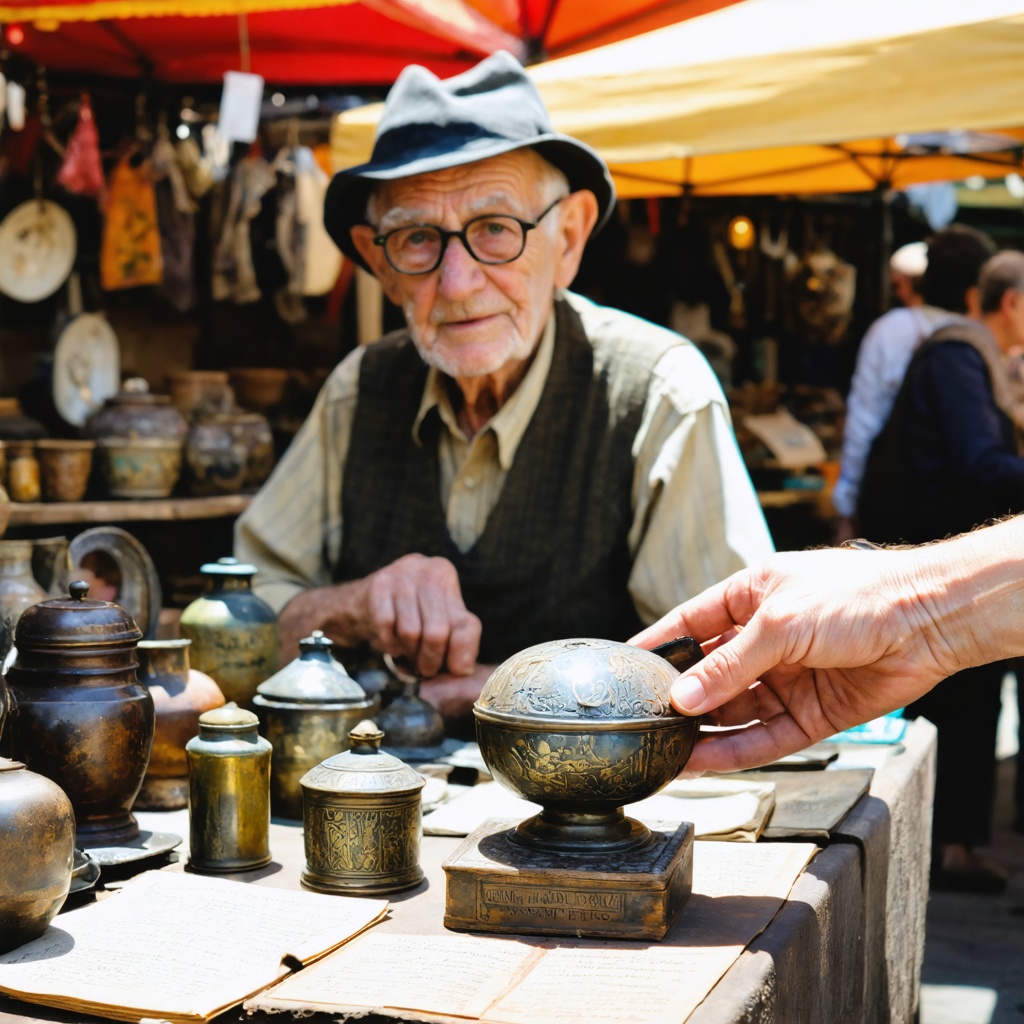 Image by RM AI
Image by RM AI
A Mother's Pride
The following weekend, Cameron came to visit. At thirty-two, my son had grown into a thoughtful, intelligent man with his father's height and my curiosity.
He worked as an environmental engineer, a career that perfectly suited his analytical mind and passion for protecting our planet. Our relationship had weathered the storm of the divorce remarkably well, though I sometimes caught glimpses of lingering pain in his eyes when certain memories surfaced.
As we sat in my kitchen sharing coffee, I couldn't help but show off my latest find. "Look what I picked up at the flea market last weekend," I said, placing the metal object on the table between us.
Cameron's eyebrows rose with interest as he reached for it. I watched with maternal pride as he examined it with the same methodical attention to detail he'd shown since childhood, when he would disassemble his toys just to understand how they worked.
His expression shifted from curiosity to something else—a frown that creased his forehead in a way that reminded me so much of his father.
 Image by RM AI
Image by RM AI
The First Warning
"Mom, I don't think this is a paperweight," Cameron said slowly, turning the object in his hands. He ran his fingers along the seam I hadn't noticed before, his frown deepening.
"See how it's sealed? And these markings..." He pointed to the worn engravings I had admired.
"These look like warning symbols, not decorations." I laughed, taking the object back from him. "You're overthinking it, honey.
It's just a quirky old paperweight." Cameron didn't smile. Instead, he pulled out his phone and took several photos of the object from different angles.
"I have a colleague who specializes in historical industrial artifacts. I'm going to send these to him." I rolled my eyes affectionately at what I perceived as his overreaction.
"Always the scientist," I teased, placing my treasure back on the kitchen windowsill where the afternoon sun made it gleam. "Now, tell me about that new project you mentioned." Cameron hesitated, his eyes lingering on the object before reluctantly changing the subject.
If only I had listened to that first warning, to my son's instincts that something wasn't right.
 Image by RM AI
Image by RM AI
An Unexpected Illness
The call came at 11:30 that night, just as I was getting ready for bed. Cameron's wife, Melissa, sounded panicked.
"Jan, something's wrong with Cameron," she said, her voice tight with worry. "He started throwing up about an hour ago and can't stop.
He's weak and dizzy, and his skin feels clammy." My mind immediately went to food poisoning—we had shared takeout from a new Thai restaurant during his visit. "Maybe it was something he ate," I suggested, already mentally reviewing what we'd consumed.
"Did you eat the same things?" Melissa confirmed they'd had different dinners, and she felt fine. We agreed to wait until morning unless his symptoms worsened, chalking it up to a stomach bug.
I hung up and headed to the bathroom to brush my teeth, catching my reflection in the mirror. My face looked flushed, and a wave of nausea suddenly rolled through me.
Within twenty minutes, I was hunched over the toilet, my body rejecting everything in my stomach with violent force. What was happening to us?
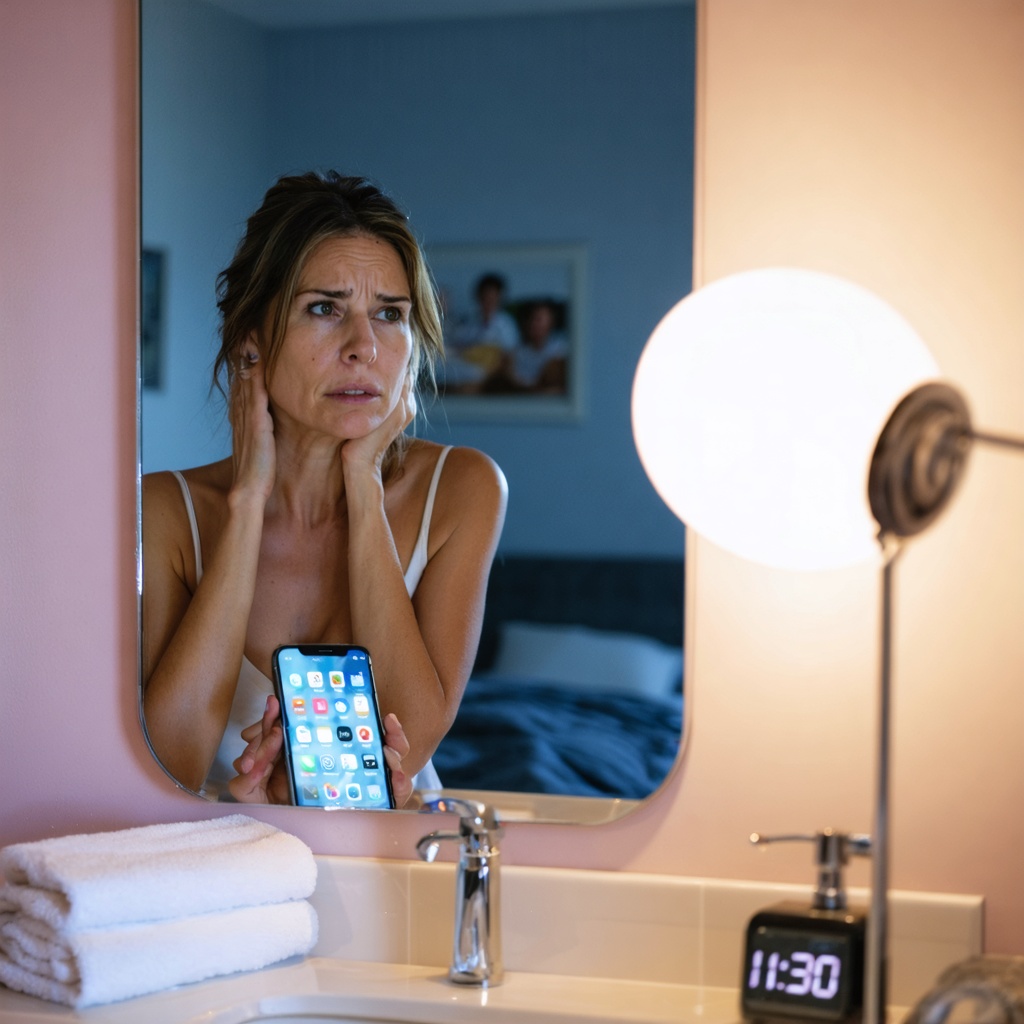 Image by RM AI
Image by RM AI
Days of Suffering
The next three days passed in a blur of misery. I could barely keep water down, and my body alternated between burning with fever and shaking with chills.
My muscles ached as if I'd run a marathon, and a persistent headache pounded behind my eyes. I managed to text Cameron, discovering he was experiencing identical symptoms.
We both assumed we had caught some aggressive virus, though it seemed strange that Melissa remained perfectly healthy. By the fourth day, I was so weak I could barely make it from my bed to the bathroom.
The room spun whenever I tried to stand, and dark spots danced at the edges of my vision. I hadn't been able to check my phone for hours when I heard knocking at my front door.
I ignored it at first, lacking the strength to answer, but the knocking persisted, growing louder and more urgent. Then I heard a voice calling my name—deep, concerned, and vaguely familiar.
Someone was worried about me, but in my foggy state, I couldn't remember who might be checking on me or how they would get in.
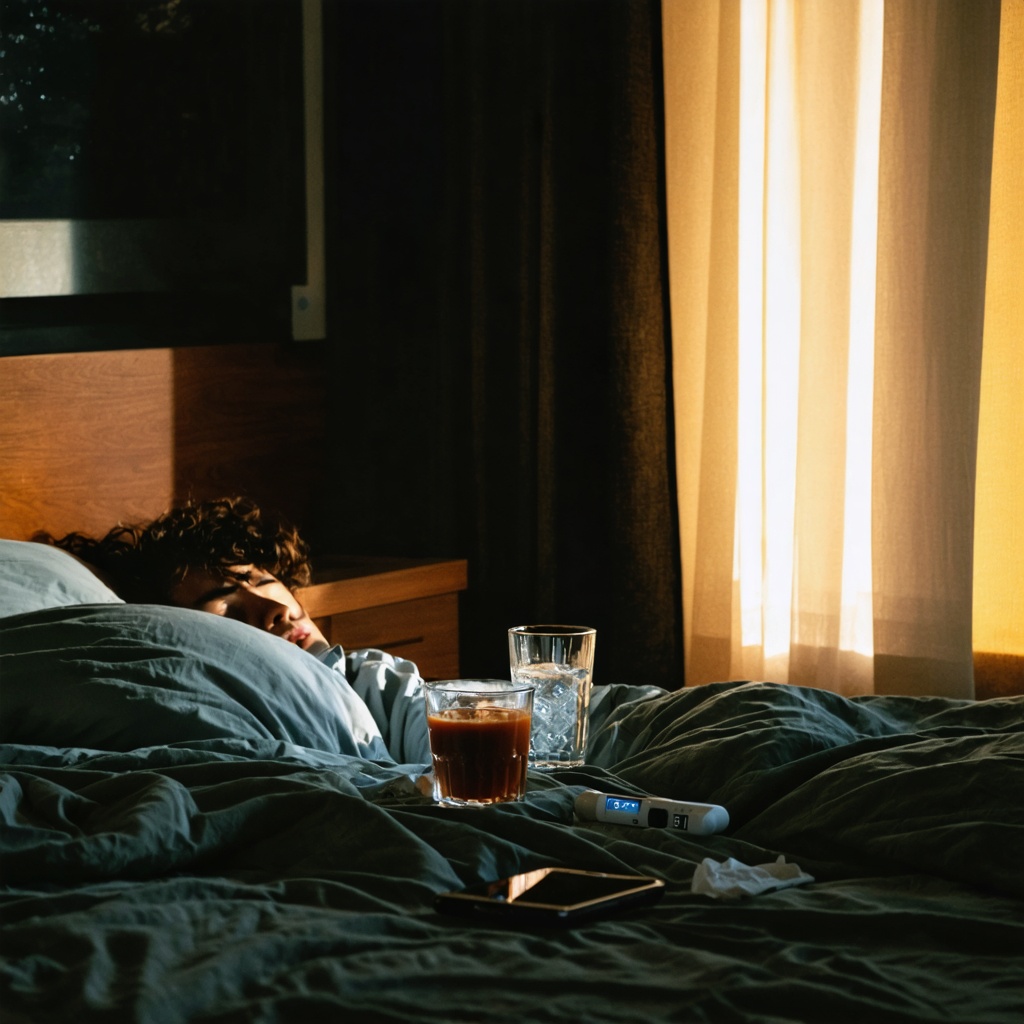 Image by RM AI
Image by RM AI
The Neighbor's Intervention
The sound of a key turning in the lock barely registered in my fever-addled mind. Footsteps approached my bedroom, and suddenly David, my neighbor from across the street, was standing in the doorway.
David had moved to the neighborhood about a year after my divorce, a retired firefighter with salt-and-pepper hair and kind eyes that crinkled at the corners when he smiled. We had exchanged pleasantries over the years, occasionally chatting about his garden or my antique finds, but never anything more personal.
"Jan? Good lord," he exclaimed, taking in my disheveled appearance and the untouched glass of water on my nightstand.
"I've been trying to call you for two days. Your son called me when he couldn't reach you." I tried to sit up, embarrassed by my weakness and the state of my bedroom.
"I'm fine," I croaked unconvincingly, my voice barely a whisper. "Just a stomach bug." David's expression told me he didn't believe me for a second.
He placed a cool hand on my forehead, his touch gentle but professional. "You're burning up," he said grimly.
"I brought soup, but you need more than that.
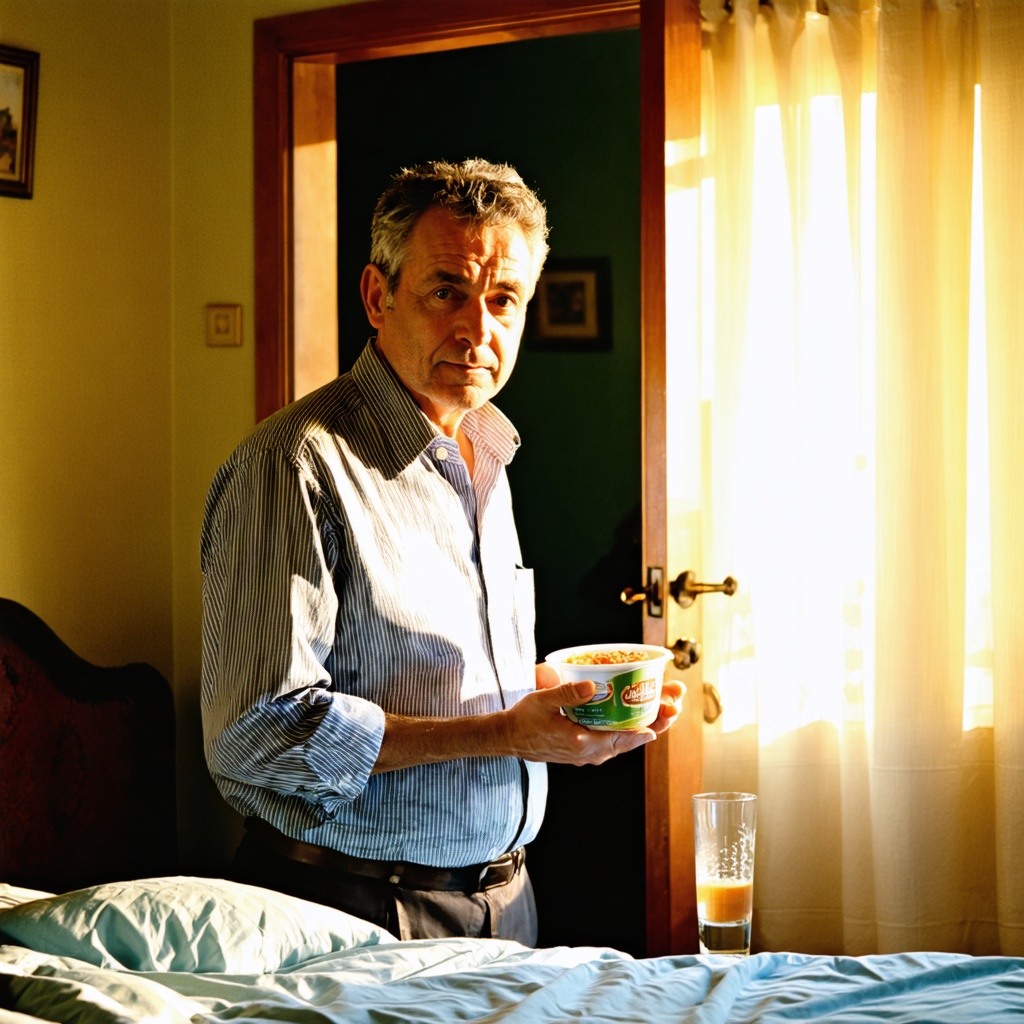 Image by RM AI
Image by RM AI
A Startling Discovery
David helped me to the kitchen, his strong arm supporting most of my weight as my legs threatened to give out with each step. He settled me at the table while he warmed the homemade chicken soup he'd brought.
I noticed his movements were efficient and practiced—the habits of someone used to caring for others in crisis situations. As he placed a steaming bowl in front of me, his gaze drifted to my windowsill where the metal object sat catching the afternoon light.
His reaction was immediate and alarming. The color drained from his face, and the spoon he was holding clattered to the counter.
"Where did you get that?" he asked, his voice suddenly tense. I explained about the flea market purchase, confused by his reaction.
David approached the windowsill cautiously, as if the object might bite. "Don't touch it," he warned when I started to rise.
"That's not a paperweight, Jan." The seriousness in his voice sent a chill through me despite my fever. What had I brought into my home?
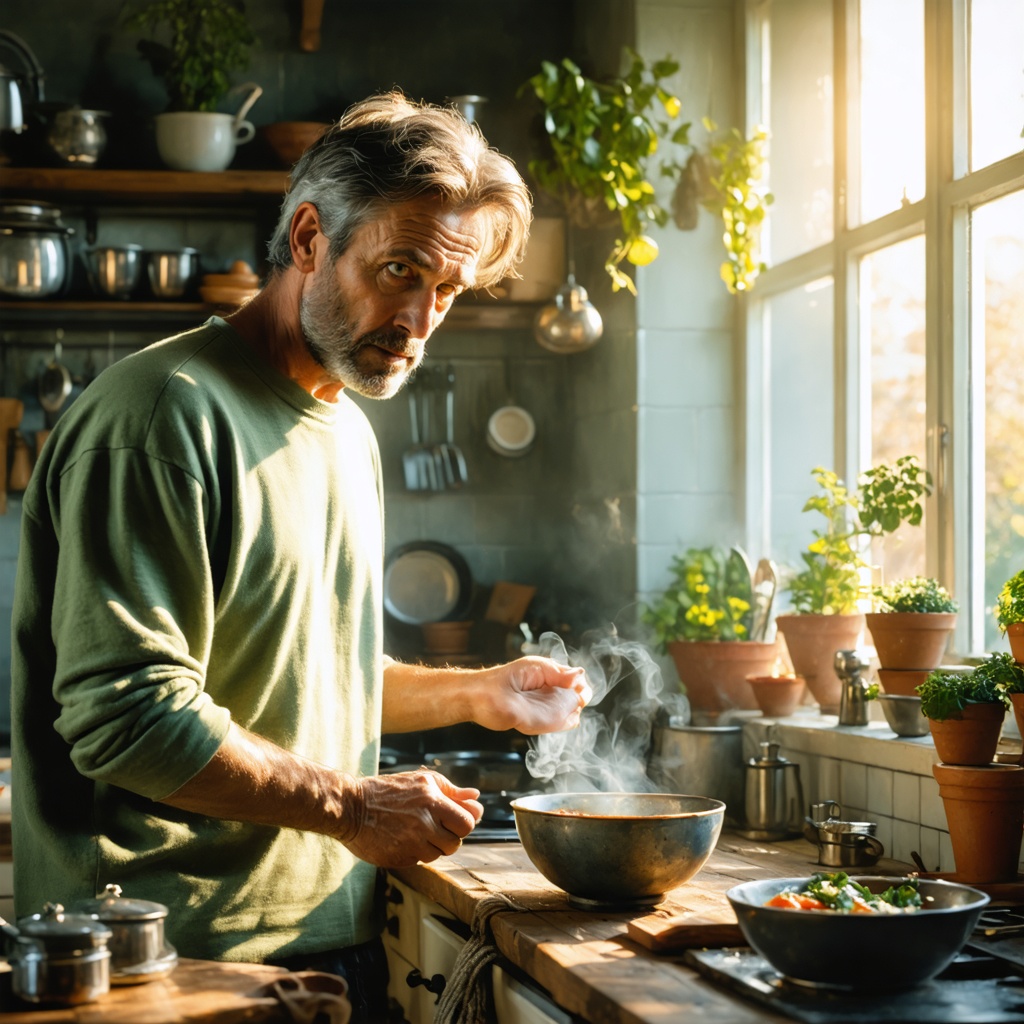 Image by RM AI
Image by RM AI
The Terrifying Truth
"What is it then?" I asked, my heart beginning to race despite my weakened state. David didn't answer immediately.
Instead, he pulled out his phone and took several photos, his movements deliberate and careful. He kept his distance from the object, I noticed, never getting closer than necessary.
"I don't want to worry you unnecessarily," he finally said, though his expression did nothing to reassure me. "But based on my training and what I'm seeing, this looks like an old lead container used for storing radioactive materials." The word 'radioactive' hung in the air between us, heavy and terrifying.
My mind flashed to Cameron, suffering the same symptoms miles away. "Radioactive?" I repeated, the word feeling foreign on my tongue.
"Like... nuclear?" David nodded grimly, already dialing a number on his phone.
"I'm calling my former chief. We need to get you and Cameron to the hospital right away, and we need a hazmat team to secure this object.
Tell me exactly who has handled it and for how long.
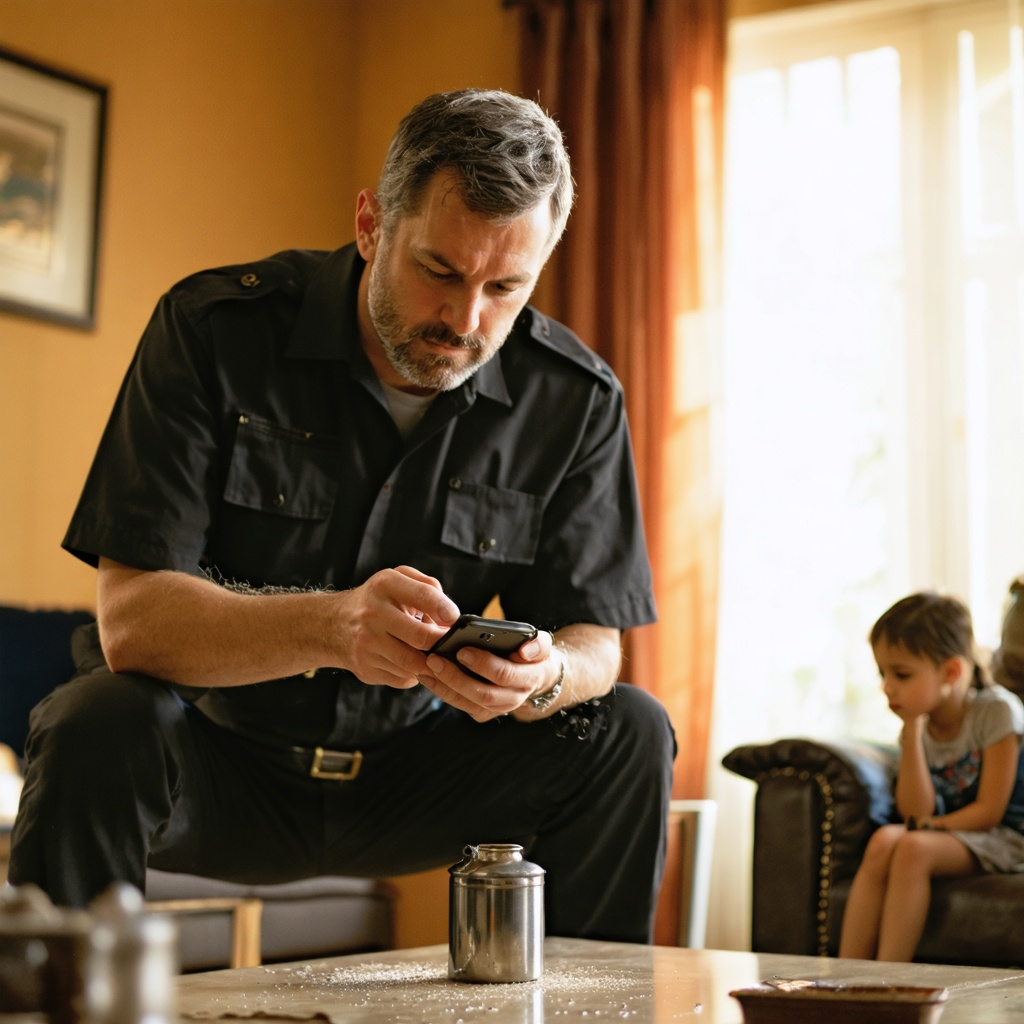 Image by RM AI
Image by RM AI
Race Against Time
Everything happened with dizzying speed after that. David helped me to his car, a sturdy SUV that smelled faintly of pine and coffee.
He drove with focused urgency, one hand on the wheel and the other holding his phone as he coordinated with his former colleagues. I directed him to Cameron and Melissa's house, my heart pounding with fear for my son.
When we arrived, Cameron looked even worse than I felt—his skin had a grayish tinge, and he could barely walk without Melissa's support. David explained the situation to them in calm, clear terms that somehow made the terrifying reality easier to grasp.
"The symptoms you're experiencing are consistent with radiation poisoning," he told us as we headed toward the hospital. "Nausea, vomiting, weakness, headache—they match exposure to thorium, a radioactive element that was once used in various industrial applications." Cameron nodded weakly, understanding dawning in his eyes.
"That's why I had a bad feeling about it," he murmured. "The markings..."
Medical Dismissal
The emergency room was chaotic when we arrived—a multi-car accident had brought in several trauma patients, and the staff moved with harried efficiency. David helped us to the triage desk, where a nurse with tired eyes and a tight ponytail barely looked up from her computer as she asked about our symptoms.
"Sounds like food poisoning," she said dismissively after I explained our situation. "Probably something you both ate." I tried to interject, to explain about the radioactive object, but she cut me off with a wave of her hand.
"Sir, unless you're family, you'll need to wait outside," she told David, already turning to the next patient. David's jaw tightened, but he stepped back respectfully.
"I'll make some calls," he assured us. "Just hang tight." Cameron and I were directed to plastic chairs in the waiting area, given clipboards with forms to complete and told it would be at least a two-hour wait.
I watched David step outside, his phone already at his ear, his posture radiating determination. In that moment, despite my fear and illness, I felt a surge of gratitude for this man who had entered my life at exactly the right moment.
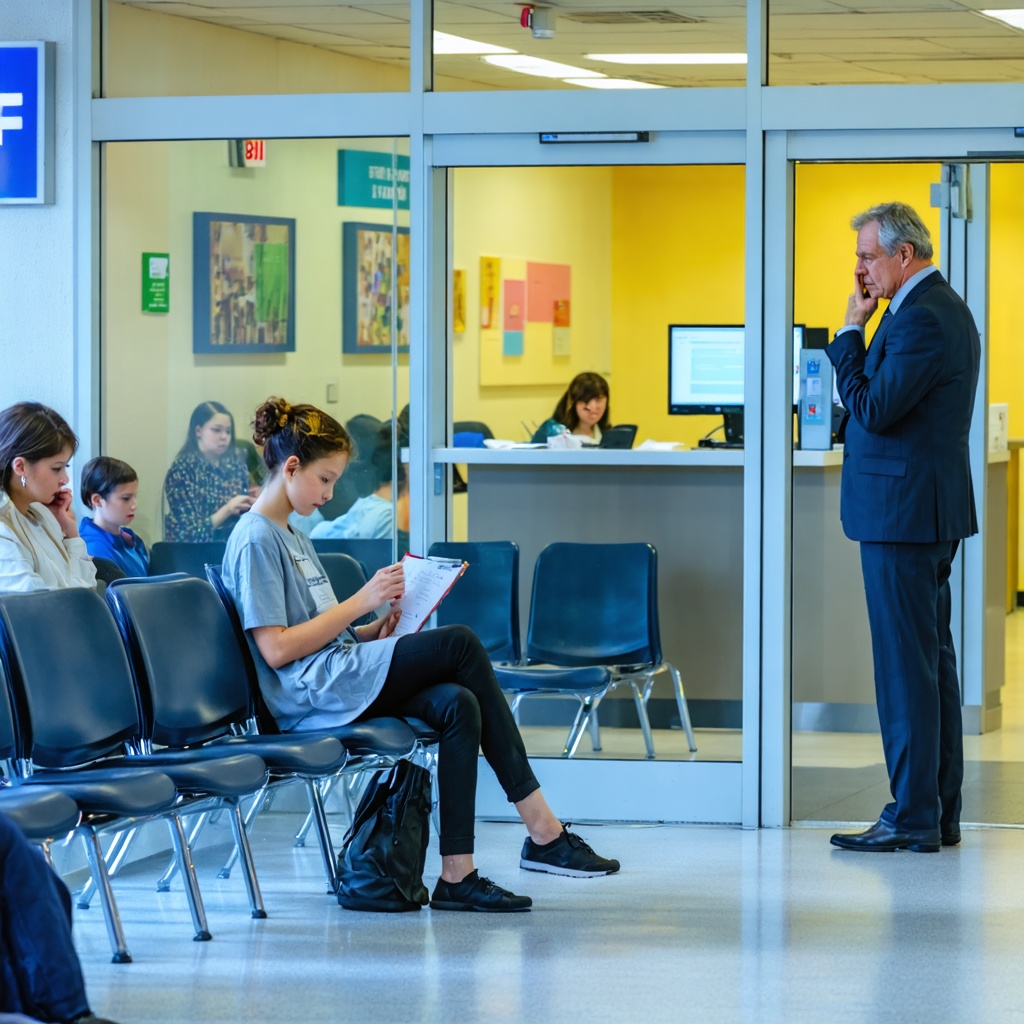 Image by RM AI
Image by RM AI
The Cavalry Arrives
We had been waiting for over an hour, Cameron dozing fitfully against my shoulder, when the emergency room doors slid open with authority. David walked in, accompanied by a tall man in a crisp uniform adorned with badges and insignia—clearly someone of importance in the fire department.
The change in the atmosphere was immediate. Nurses and doctors who had been hurrying past us suddenly stopped, their attention captured by the commanding presence of the Fire Chief.
David spotted us and led his companion directly to where we sat. "This is Fire Chief Roberts," David introduced.
"He's here about the radiation exposure." The word 'radiation' acted like a magic spell, transforming the indifference of the medical staff into immediate concern. The triage nurse who had dismissed us earlier approached quickly, her expression now alert and professional.
"We need to get these patients into isolation immediately," Chief Roberts stated, his authoritative tone brooking no argument. "They've potentially been exposed to thorium radiation.
We have a hazmat team en route to secure the source.
 Image by RM AI
Image by RM AI
Behind Closed Doors
Within minutes, Cameron and I were whisked away to a separate area of the emergency department. Medical staff now moved with urgent purpose around us, donning protective gear that made my stomach clench with fear.
A doctor in her fifties with kind eyes above her mask explained what was happening as nurses inserted IVs into our arms. "We're starting you both on fluids and medications to help your bodies eliminate the radioactive particles," she said.
"We'll be taking blood samples to determine your level of exposure and monitoring you closely for the next several hours." I glanced at Cameron, seeing my own fear reflected in his eyes. "Are we going to be okay?" I asked, hating how small my voice sounded.
The doctor's eyes crinkled slightly—she was smiling behind her mask. "Thorium exposure is serious, but treatable when caught early," she assured us.
"Your neighbor's quick action may have saved you from much worse outcomes. You're lucky he recognized what you were dealing with.
 Image by RM AI
Image by RM AI
The Hazmat Response
Through the glass partition of our treatment room, I could see David speaking with Chief Roberts and several hospital administrators. Their conversation appeared intense, with David gesturing emphatically while the others nodded.
A nurse explained that a hazmat team had been dispatched to my house to safely remove and contain the radioactive object. "They'll check your home for contamination and decontaminate any affected areas," she explained while checking my vital signs.
"You won't be able to return until they give clearance." The reality of the situation was finally sinking in—my innocent flea market purchase had not only endangered my life and my son's, but had turned my home into a hazardous site requiring professional cleanup. I thought about my carefully curated collection of antiques, wondering if they would be damaged or destroyed in the process.
It seemed trivial compared to our health, yet these objects had become my emotional anchors after my divorce. Would I lose them too?
And where would I go once I was released from the hospital?
The Science of Survival
As the hours passed, doctors and specialists came and went, explaining our treatment plan in terms that made my head spin. Cameron, despite his weakened state, asked detailed questions about half-lives and alpha radiation that revealed his scientific background.
I learned that thorium was once commonly used in various industrial and consumer products before its radioactive properties were fully understood. The container I had purchased was likely from the early 20th century, designed to hold thorium salts used in manufacturing.
"The good news," explained a radiation specialist with thick glasses and a soft voice, "is that your exposure appears to have been relatively brief and primarily external. The container was sealed, which limited your exposure to alpha radiation that can't penetrate deeply into tissue." He showed us our blood work results, pointing to numbers that meant nothing to me but seemed to satisfy him.
"We'll continue treatment to help your bodies eliminate any particles you may have inhaled or ingested, but I'm optimistic about your prognosis.
 Image by RM AI
Image by RM AI
A Guardian Angel
Throughout our hospital stay, David remained a constant presence. He coordinated with the hazmat team, spoke with doctors, and even arranged for Melissa to bring us clean clothes and toiletries.
When I asked why he was going to such lengths for neighbors he barely knew, he shrugged with disarming modesty. "It's what firefighters do," he said simply.
"We look out for people." But I sensed there was more to it than professional habit. During quieter moments, when Cameron was sleeping or speaking with doctors, David and I talked.
He told me about his thirty-year career with the fire department, about the specialized hazardous materials training that had allowed him to recognize the danger in my home. I learned that he had lost his wife to cancer three years ago, that gardening had become his therapy, that he had a daughter in Seattle and a son in the military.
With each conversation, the man who had been merely my neighbor across the street became more real, more human, and increasingly important to me.
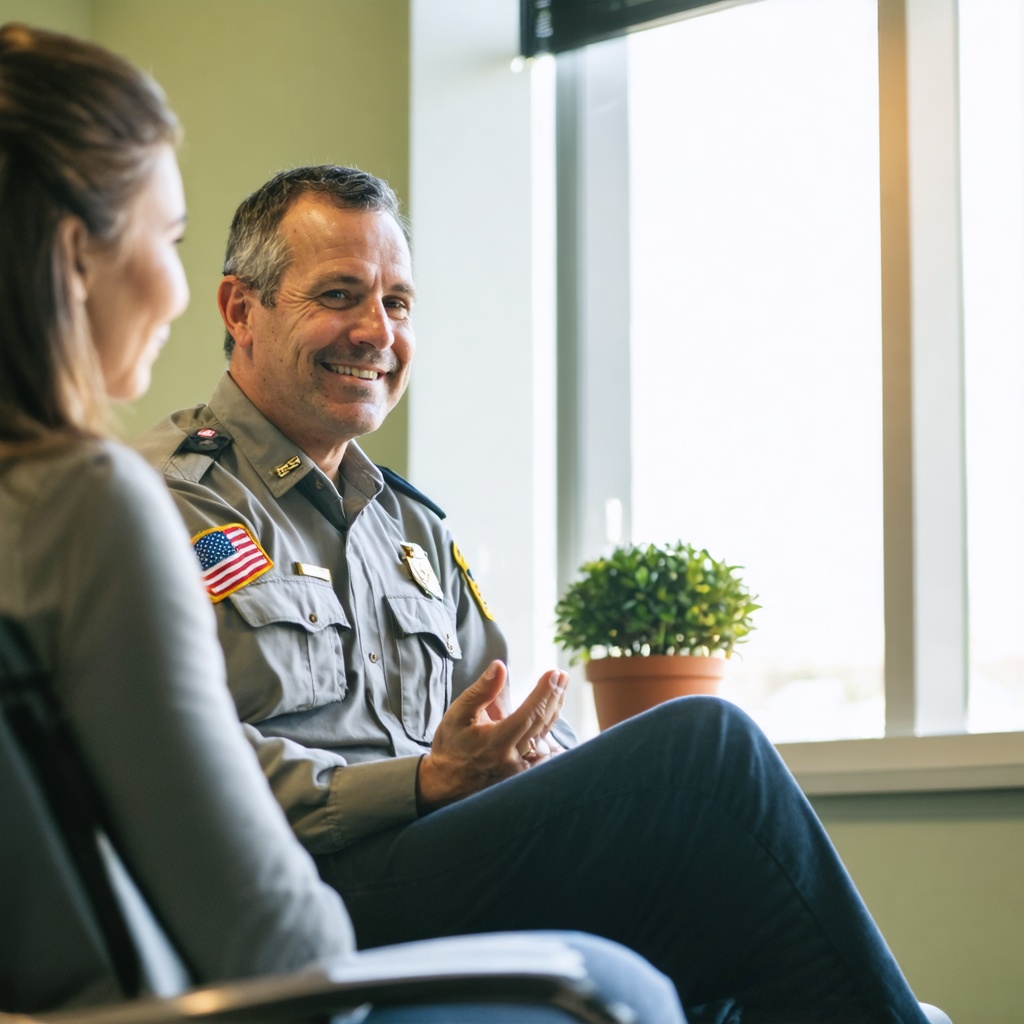 Image by RM AI
Image by RM AI
The Vendor's Vanishing Act
While Cameron and I recovered in the hospital, Chief Roberts launched an investigation to locate the flea market vendor who had sold me the dangerous object. David kept us updated on their progress, or lack thereof.
"The market organizers have no record of him," he reported, frustration evident in his voice. "He paid cash for his table space and gave a name that doesn't match any local records.
The other vendors remember him but don't know anything about him." It was disturbing to think that someone had knowingly sold a radioactive object at a public market. Had he known what it was?
Was he selling other dangerous items to unsuspecting collectors? The thought made me sick in a way that had nothing to do with radiation exposure.
My beloved hobby suddenly seemed fraught with invisible dangers. How many other seemingly innocent objects harbored deadly secrets?
The antique perfume bottles, the vintage kitchen tools, the old cameras—were any of them safe? My passion for collecting had nearly killed me and my son.
Would I ever feel the same excitement about a flea market find again?
The All-Clear
After three days of intensive treatment and monitoring, the doctors finally gave us the news we'd been hoping for. "Your levels are looking good," the radiation specialist announced, reviewing our latest test results.
"There's no evidence of significant internal contamination, and your symptoms have resolved nicely." He explained that we would need follow-up appointments and possibly some additional treatments, but we were cleared to leave the hospital. There was just one problem—my house was still being decontaminated.
The hazmat team had removed the radioactive container and was conducting thorough testing to ensure no dangerous particles remained. "It could be another day or two before your home is cleared for reentry," David explained when he came to drive us from the hospital.
Cameron and Melissa immediately offered to have me stay with them, but their small apartment barely had room for the two of them. Before I could worry about hotel costs or imposing on friends, David cleared his throat.
"I have a guest room that's just gathering dust," he offered casually. "You're welcome to stay until your place is ready.
A Temporary Home
David's house was exactly what I would have expected from a retired firefighter—practical, well-maintained, and meticulously organized. The guest room was simple but comfortable, with crisp blue sheets and a window overlooking his prized vegetable garden.
"Bathroom's across the hall," he said, setting my overnight bag on the bed. "Kitchen's always open, and there's fresh coffee every morning at six." He showed me around with the slightly awkward formality of someone unaccustomed to having guests, pointing out the thermostat controls and explaining the quirks of the shower faucet.
I noticed small touches that spoke of his late wife's presence—floral curtains that didn't match his practical aesthetic, a collection of delicate bird figurines on a shelf, framed cross-stitch samplers with inspirational quotes. He caught me looking at a wedding photo on the hallway wall.
"That's Margaret," he said softly. "She's been gone three years now." The pain in his voice was familiar—the same ache I felt when thinking about my failed marriage, about dreams that would never come true.
But there was something else there too, a quiet acceptance that gave me hope.
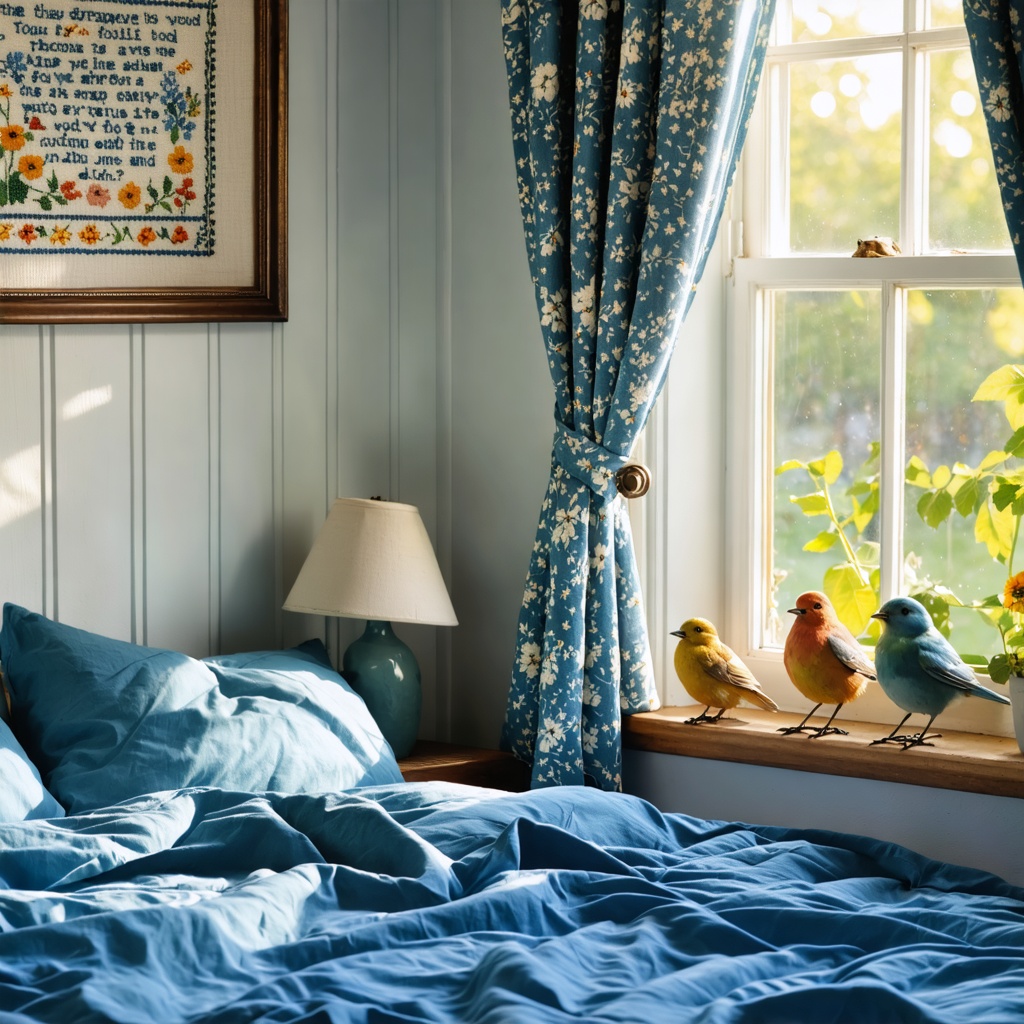 Image by RM AI
Image by RM AI
Morning Revelations
I woke the next morning to the aroma of coffee and something baking. Following my nose to the kitchen, I found David in a worn flannel shirt and jeans, removing a tray of blueberry muffins from the oven.
"Hope I didn't wake you," he said, looking slightly embarrassed. "I'm an early riser." I assured him that the smell of homemade muffins was the best alarm clock possible, and we settled into a surprisingly comfortable breakfast routine, as if we'd been sharing mornings for years instead of hours.
Over coffee, David shared the latest update from the hazmat team. "They've cleared your living areas," he reported.
"The object was contained in a lead casing that limited the spread of radiation, thankfully. They found some contamination on the windowsill and kitchen counter, but they've removed the affected materials.
You should be able to go home tomorrow." I should have felt relieved, but instead, I felt a strange reluctance. The thought of returning to my empty house, to my solitary life surrounded by antiques that now seemed potentially threatening rather than comforting, filled me with unexpected dread.
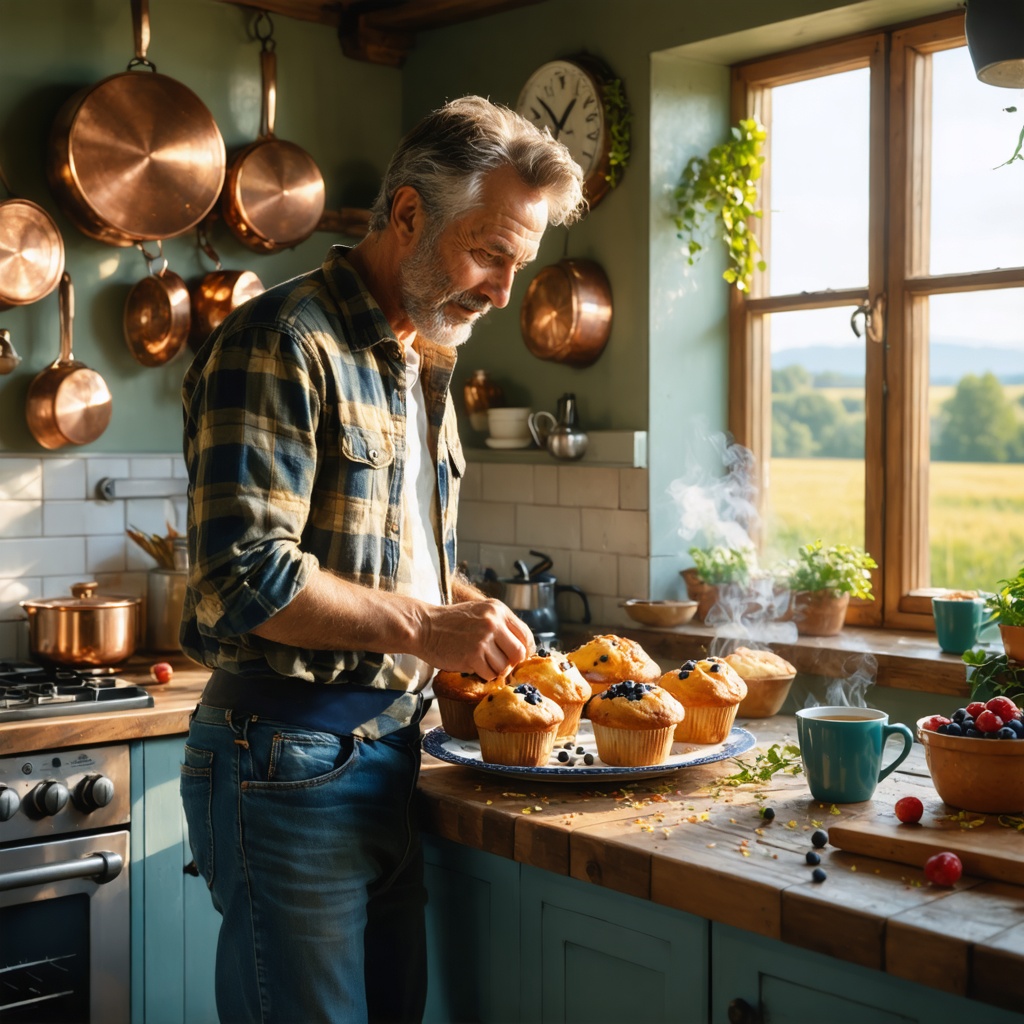 Image by RM AI
Image by RM AI
Confronting Fear
"I don't know if I can go back to collecting," I confessed to David that evening as we sat on his back porch, watching the sunset paint the sky in shades of pink and gold. "Every time I look at my antiques now, I'll wonder what invisible dangers they might be hiding." David was quiet for a moment, considering my words as he sipped his tea.
"Fear is a tricky thing," he finally said. "In my years as a firefighter, I saw how it could either paralyze people or push them to take smart precautions." He set his mug down and turned to face me directly.
"What if you approached collecting differently? Learn about the dangerous materials used in different eras.
Get a radiation detector—they make small, affordable ones now. Turn your experience into expertise." His suggestion resonated with something deep inside me—the part that had always loved research and learning, that had found joy in uncovering the stories behind my treasures.
Maybe this experience didn't have to end my passion; maybe it could transform it into something even more meaningful.
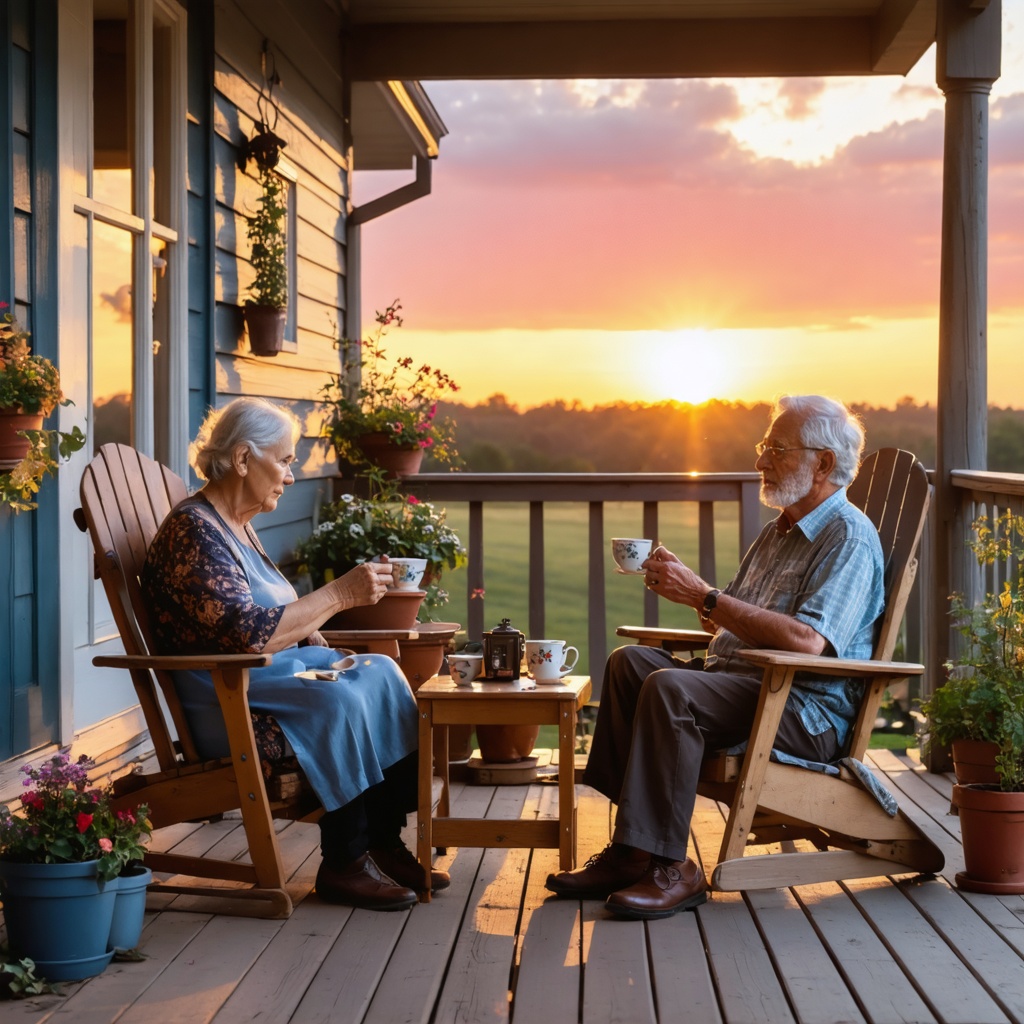 Image by RM AI
Image by RM AI
A Proposition
The following morning, as I packed my few belongings to return home, David hovered in the doorway of the guest room, uncharacteristically hesitant. "I've been thinking," he began, then stopped, running a hand through his silver-streaked hair.
"About what?" I prompted, folding a borrowed sweater and placing it on the bed. He took a deep breath, as if preparing to enter a burning building.
"About your antique hunting," he said. "I was wondering if...
well, if you might want some company next time you go." The question hung between us, carrying more weight than its simple words suggested. I studied his face—the crinkles around his eyes, the slight nervousness in his expression, the hope he was trying to conceal.
This wasn't just about antiques. This was a man who had been alone for three years, reaching out across the void of loneliness toward someone who understood that particular pain.
"I'd like that," I replied, surprised by the warmth spreading through me. "I could use someone with your expertise to keep me from buying any more radioactive paperweights.
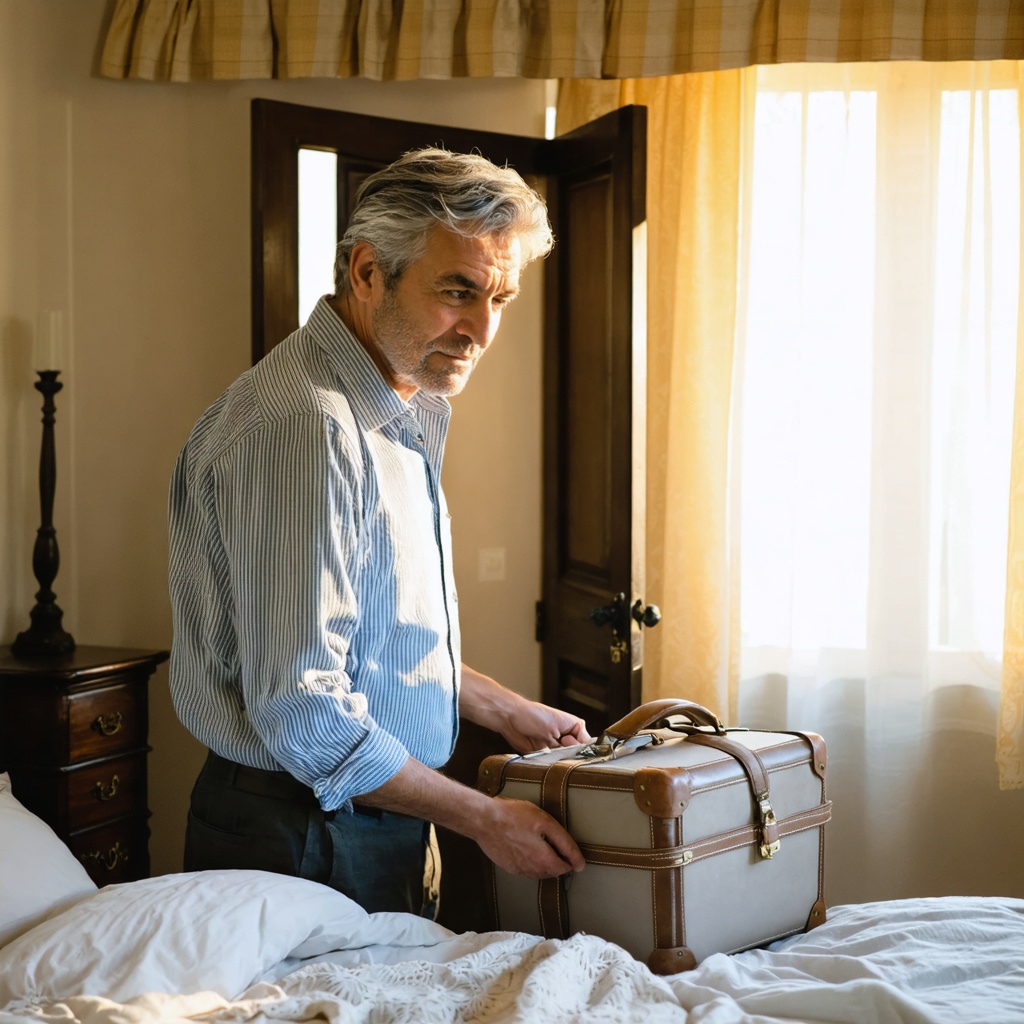 Image by RM AI
Image by RM AI
Homecoming
My house felt different when I returned—cleaner, certainly, thanks to the thorough decontamination process, but also somehow less mine. The hazmat team had needed to remove several items that had been too close to the radioactive object, including my favorite windowsill plants and some kitchen linens.
The absence of these small, familiar touches made the space feel slightly alien, as if I were visiting someone else's home. Cameron came by to check on me, bringing a small device that he placed on my coffee table.
"It's a radiation detector," he explained. "Battery-powered, easy to use.
Just press this button before you bring any new antiques into the house." His thoughtfulness brought tears to my eyes. We had always been close, but our shared brush with death had created a new dimension to our relationship.
As we talked about his recovery and the follow-up appointments we both needed to keep, I found myself sharing my conversation with David, including his offer to join me on future antiquing trips. Cameron's smile was knowing.
"He seems like a good man, Mom," he said simply. "And everyone deserves a second chance at happiness.
 Image by RM AI
Image by RM AI
The First Expedition
Two weeks later, David and I set out on our first antiquing adventure together. I had chosen a large, well-established antique mall in a neighboring town—a controlled environment that felt safer than the unregulated chaos of a flea market.
David drove, his truck much more practical for hauling potential treasures than my compact car. The conversation flowed easily between us, jumping from childhood memories to favorite books to his daughter's recent promotion.
When we arrived, I felt a familiar flutter of excitement, but also a new undercurrent of anxiety. David must have sensed my hesitation at the entrance, because he gently touched my elbow.
"We've got this," he said, patting the radiation detector in his pocket. "Between your knowledge of antiques and my safety training, we make a pretty good team." His confidence was contagious, and I found myself relaxing as we wandered through the aisles.
I explained the differences between Art Deco and Art Nouveau to him, while he pointed out vintage tools whose purposes had been lost to time.
 Image by RM AI
Image by RM AI
New Perspectives
Shopping for antiques with David offered an entirely new perspective on my hobby. His practical, safety-oriented mindset complemented my aesthetic and historical interests in unexpected ways.
He asked questions I'd never considered—about the composition of glazes on vintage pottery, the materials used in old clock faces, the potential for lead in antique toys. Far from dampening my enthusiasm, his questions enhanced my appreciation for these objects and their histories.
"People were so ingenious," he remarked, examining a complex mechanical bank from the 1920s. "They created amazing things with the materials and knowledge they had at the time." I watched him interact with the antiques, his strong hands surprisingly gentle as he turned over delicate porcelain figurines or tested the mechanisms of old locks.
There was a reverence in his touch that spoke of respect for craftsmanship and history. By the time we stopped for lunch at a small café adjacent to the antique mall, I had purchased only one item—a hand-embroidered linen tablecloth—but I felt richer than after any previous shopping trip.
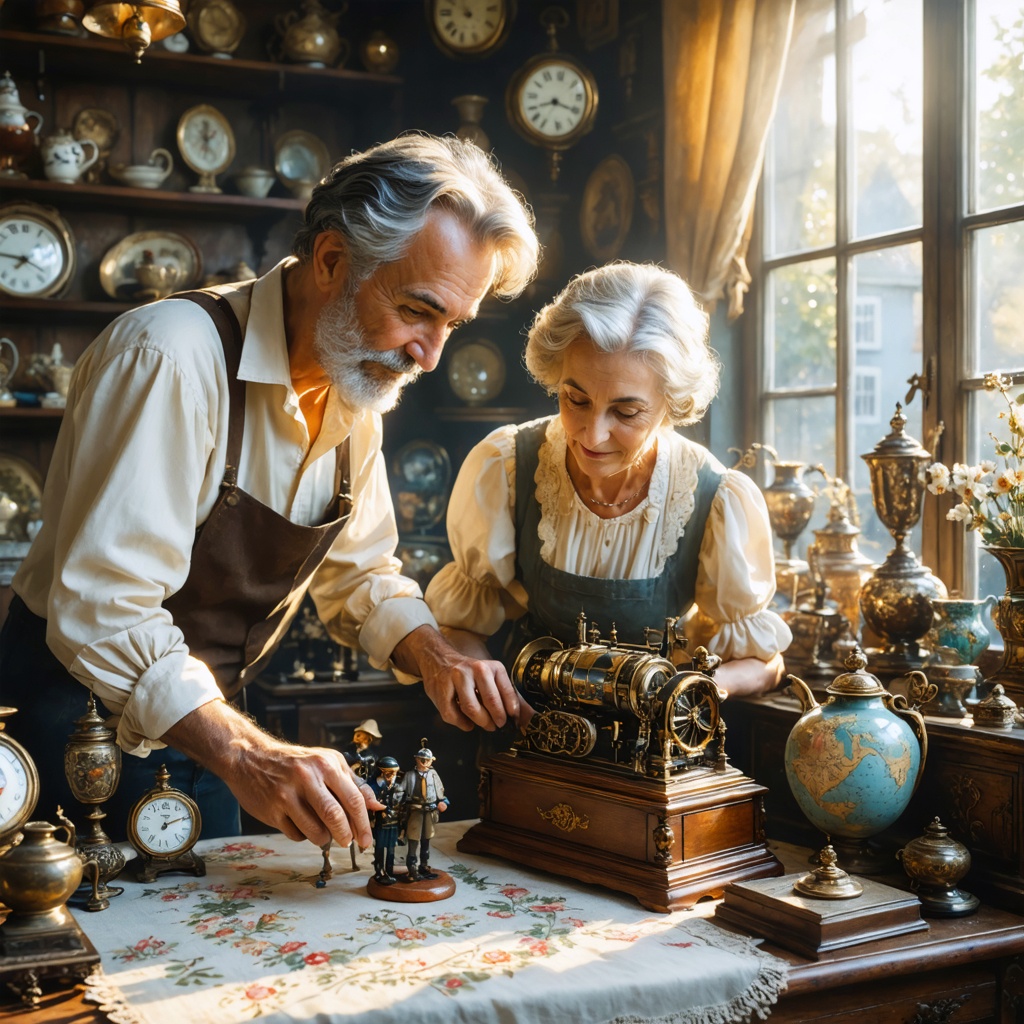 Image by RM AI
Image by RM AI
Shared Confidences
Over sandwiches and iced tea, our conversation deepened. David spoke about his wife's illness, the long months of watching her fade, the emptiness of the house after she was gone.
"The hardest part was the silence," he confessed, his eyes focused on something distant. "After forty years of her voice filling our home, the quiet was unbearable." I nodded, understanding completely.
"That's why I started collecting," I admitted. "Not because I particularly cared about antiques at first, but because I needed something to fill the space he left behind." David's eyes met mine, recognition flashing between us.
"It's different, divorce and death," he acknowledged. "But loss is loss." We sat in comfortable silence for a moment, two people who had navigated their separate storms and somehow washed up on the same shore.
When his hand reached across the table to cover mine, it felt like the most natural thing in the world. His palm was warm and slightly calloused—the hand of someone who had built things, fixed things, saved things.
Including, perhaps, me.
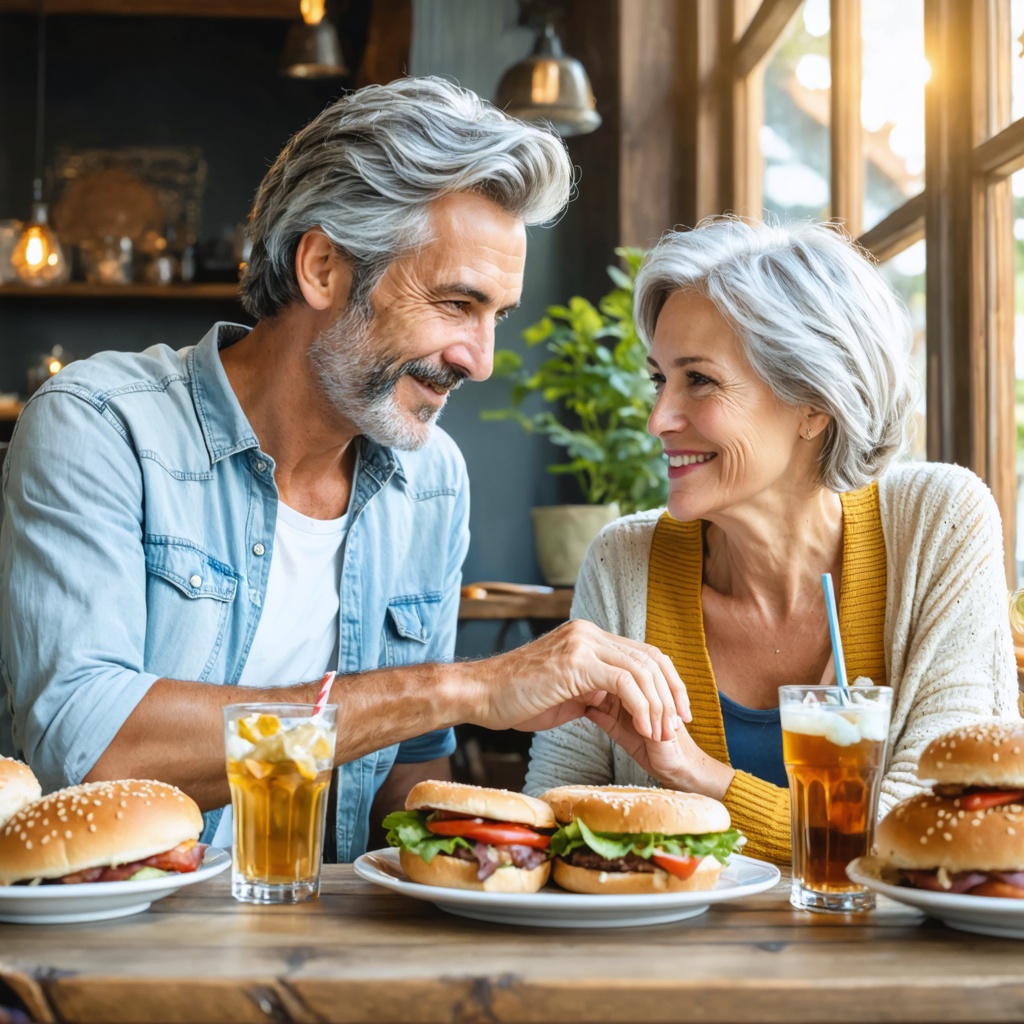 Image by RM AI
Image by RM AI
A New Collection Begins
In the months that followed, David and I fell into a pleasant routine. Every other weekend, we would venture out to a new antique destination—sometimes grand auction houses in the city, other times dusty barns in the countryside where treasures hid among genuine junk.
I became more selective in my purchases, focusing on quality over quantity, and always with David's radiation detector discreetly checking each potential acquisition. My collection evolved, becoming more curated and meaningful.
I sold or donated many of my earlier impulse buys, keeping only those pieces that truly spoke to me or had significant historical value. David, to my surprise, developed his own collecting interest—vintage firefighting memorabilia that connected to his professional past.
His enthusiasm was contagious as he explained the evolution of fire helmets or the historical significance of different badge designs. Our separate collections began to mingle in my home, his brass fire extinguishers and leather helmets finding places among my porcelain and glass.
Like our lives, our possessions were gradually, naturally intertwining.
The Anniversary
Six months to the day after my hospital release, David suggested we return to the flea market where I had purchased the radioactive container. I hesitated, unsure if I was ready to face the source of such trauma.
"We don't have to," he assured me, his hand warm against my back. "But sometimes confronting the scene of an accident helps put it behind you.
I've seen it work for people who survived house fires." His logic made sense, and with him beside me, I felt brave enough to try. The market looked exactly the same—colorful canopies, eager vendors, treasure hunters browsing with hopeful expressions.
Yet everything felt different because I was different. I moved through the aisles with new awareness, my eyes trained to spot potential hazards, my knowledge deeper about the materials and manufacturing processes of different eras.
David stayed close, our hands occasionally brushing in a way that sent pleasant tingles up my arm. We didn't find the mysterious vendor who had sold me the dangerous object—the investigation had never located him—but I found something more valuable:
confidence in my ability to pursue my passion safely.
The Question
We were driving home from the flea market, the trunk holding our modest purchases—a set of vintage firefighting postcards for David and a hand-painted tea caddy for me—when he suddenly pulled into a scenic overlook. The view was spectacular, rolling hills stretching toward the horizon, painted in the rich golds and reds of late autumn.
"I wanted to ask you something," he said, turning off the engine. His usually confident demeanor had given way to something more vulnerable, almost shy.
My heart began to race, sensing the importance of the moment. "These past six months have been the happiest I've known since Margaret died," he continued, his voice steady despite the emotion behind his words.
"I never expected to feel this way again—to look forward to each day, to find joy in sharing experiences with someone, to..." He paused, taking a deep breath. "To fall in love again." The last words were almost a whisper, but they echoed loudly in the quiet car.
"Jan, would you consider moving in together? Not just for practicality, but because I want to build a life with you.
Unexpected Treasures
The question hung between us, as weighty and significant as any I'd faced in my fifty-five years. I thought about my house, filled with carefully collected treasures that had once been my primary source of comfort.
I thought about David's home, practical and solid like him, gradually warming with my influence. I thought about how my life had changed since that fateful day when a five-dollar purchase nearly killed me but ultimately led me to love.
"Yes," I answered, the simplicity of the word belying the complexity of emotions behind it. David's smile was radiant as he leaned across the console to kiss me, his lips gentle against mine.
As we drove home—to his home that would soon be our home—I marveled at life's strange twists and turns. I had spent years searching flea markets for valuable antiques, never imagining that the most precious find would be a relationship that began because of a dangerous object and a neighbor's kindness.
Some treasures can't be displayed on shelves or protected in glass cabinets. Some treasures live in shared laughter, in the comfort of understanding, in the promise of companionship through whatever challenges lie ahead.
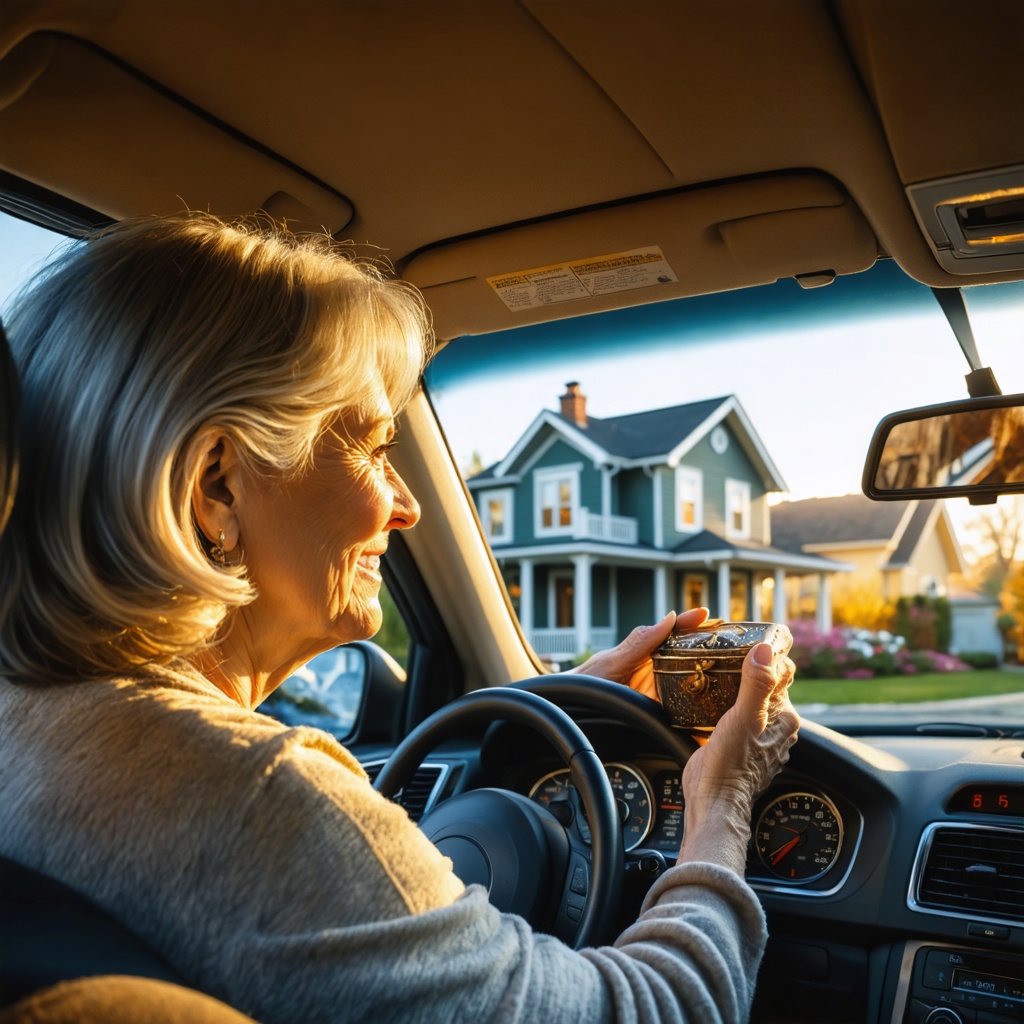 Image by RM AI
Image by RM AI
Epilogue: One Year Later
Today marks one year since I was released from the hospital, and David and I are celebrating with a small gathering in our backyard. Cameron and Melissa are here, along with David's daughter who flew in from Seattle.
Chief Roberts came too, bringing a vintage fire department photograph he found for David's collection. As I look around at our blended family enjoying the afternoon sunshine, I can't help but reflect on how drastically my life has changed.
The house we now share combines the best of both our homes—his practical comfort and my aesthetic touches. We converted his spare bedroom into a secure display room for our collections, complete with proper lighting and a state-of-the-art radiation detector that Cameron helped us select.
I still visit flea markets and antique shops, but now with knowledge that makes me a more discerning collector. And I'm never alone on these expeditions—David is always by my side, his presence both protective and encouraging.
Sometimes the most valuable antiques are the stories they carry, the connections they create, the unexpected journeys they inspire. My five-dollar find nearly cost me everything, but ultimately gave me more than I ever dreamed possible.
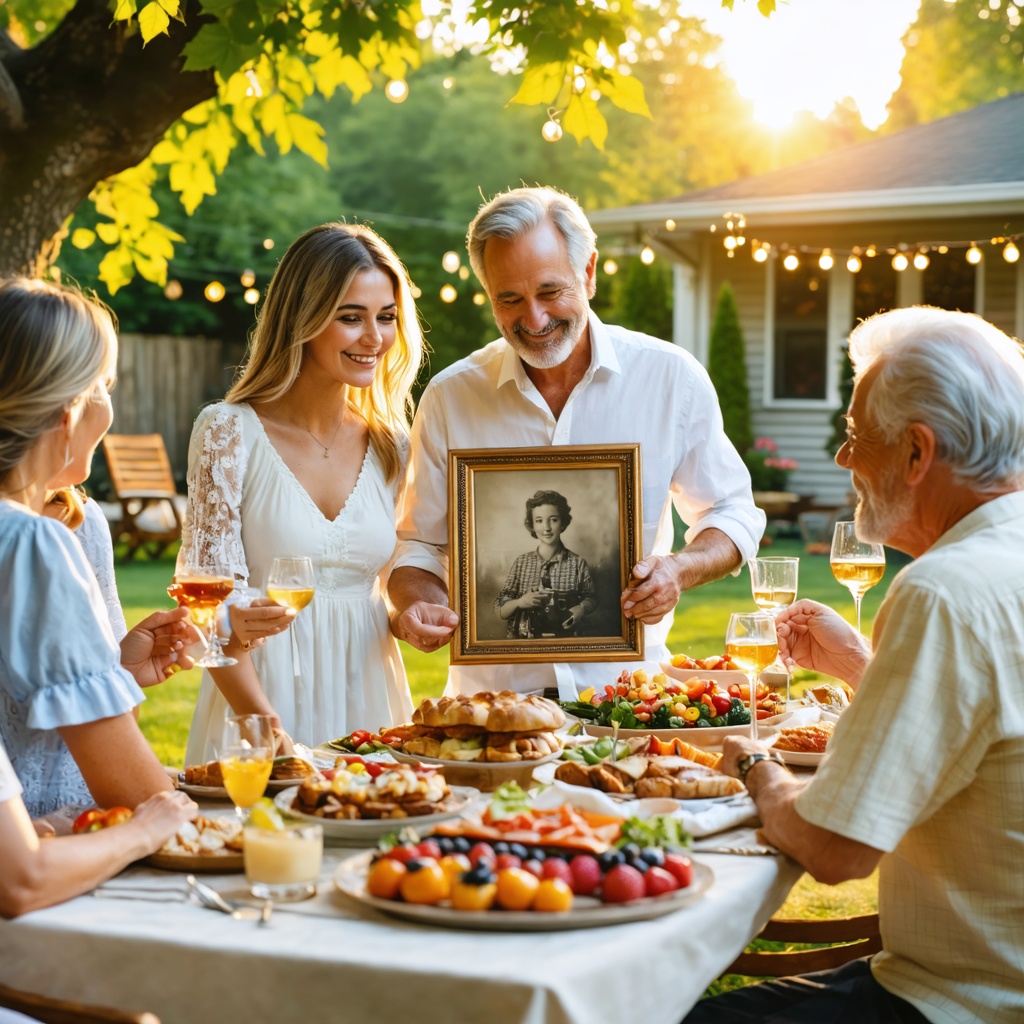 Image by RM AI
Image by RM AI
A Warning to Fellow Collectors
I share my story not to frighten other antique enthusiasts, but as a cautionary tale about the importance of knowledge and safety. The world of vintage and antique items is filled with wonderful treasures, but also with objects from eras when the dangers of certain materials weren't understood.
Radioactive elements were once used in everyday items from clock faces to dinnerware. Lead was common in toys, dishes, and paint.
Asbestos appeared in countless household goods. Yet this doesn't mean we should abandon our love of history and craftsmanship.
Instead, we should approach collecting with both passion and prudence. Research the eras and items that interest you.
Invest in basic testing equipment appropriate for your collection focus. Connect with knowledgeable dealers and fellow collectors who can share their expertise.
The joy of discovering and preserving pieces of the past is too valuable to surrender to fear. With proper precautions, antique collecting remains one of life's great pleasures—a tangible connection to history that enriches our understanding of human creativity and ingenuity.
Just remember that sometimes the most precious discoveries aren't the objects themselves, but the unexpected journeys they lead us on.
 Image by RM AI
Image by RM AI
The Lesson Learned
As I finish writing this account of my experience, I'm sitting in what David and I now call our "treasure room," surrounded by the carefully curated collections that reflect our separate and shared histories. The afternoon sun streams through the window, catching the facets of vintage glassware and the polished brass of antique firefighting equipment.
On the wall hangs a framed radiation safety certificate—I completed a course at the local community college last month, turning my frightening experience into educational opportunity. Life rarely follows the paths we expect.
A divorce I thought would diminish me instead pushed me toward new interests. A dangerous antique I thought would enhance my collection nearly took my life but ultimately led me to love.
A neighbor I barely knew became my partner and protector. Perhaps that's the greatest lesson in all of this—that value isn't always where we expect to find it, that treasures come in many forms, and that sometimes the most precious antiques are the wisdom they help us acquire.
So I'll keep hunting for interesting objects with stories to tell, but now I understand that the most important story is the one we're writing ourselves, day by day, choice by choice, love by love.
KEEP ON READING

10 Pre-Workout & 10 Post-Workout Tips To Follow



